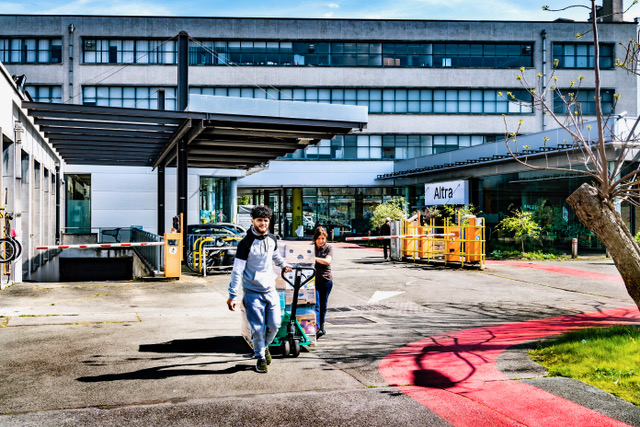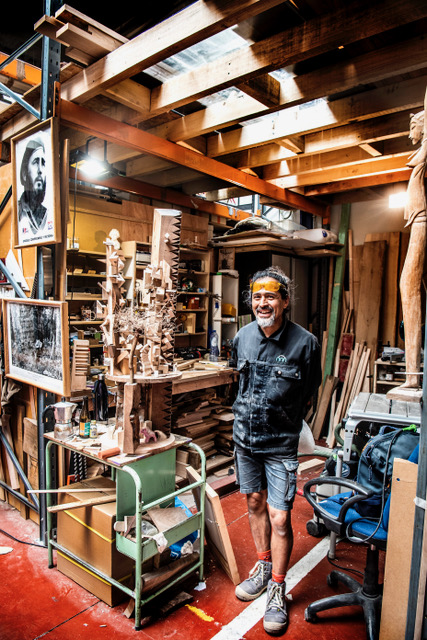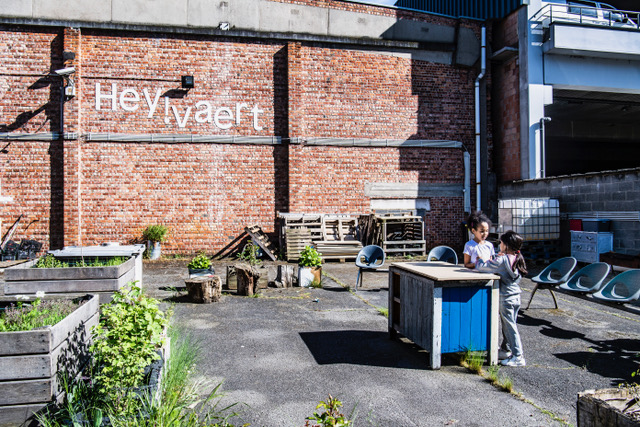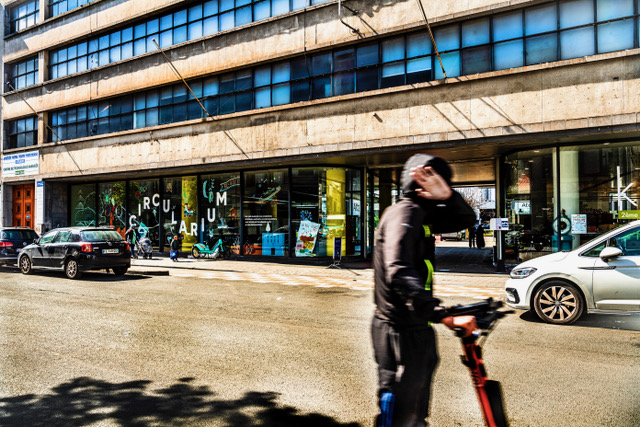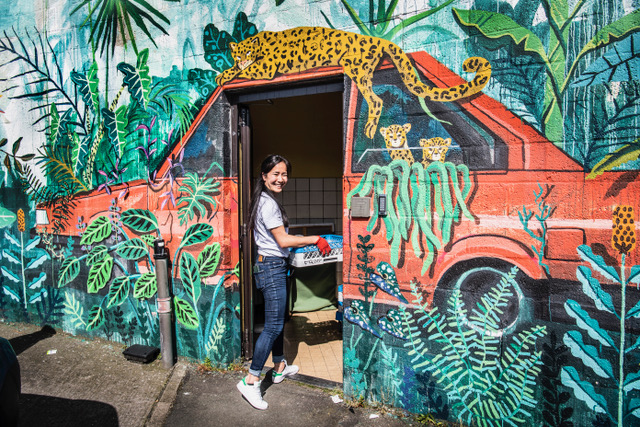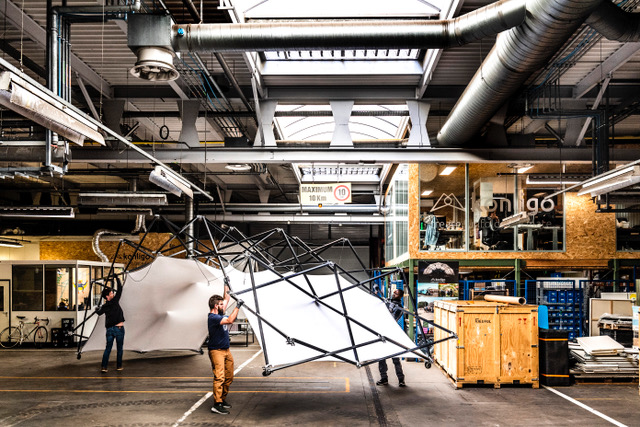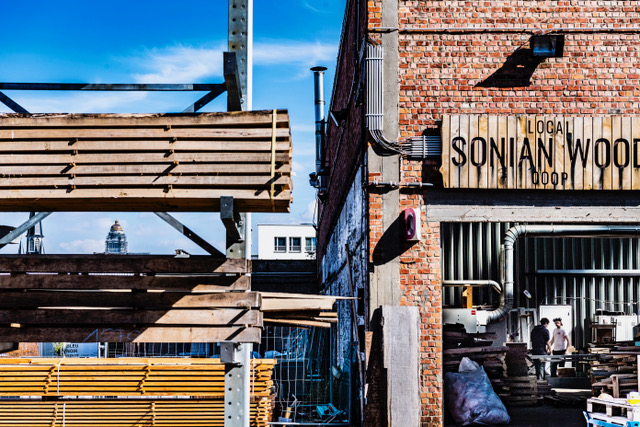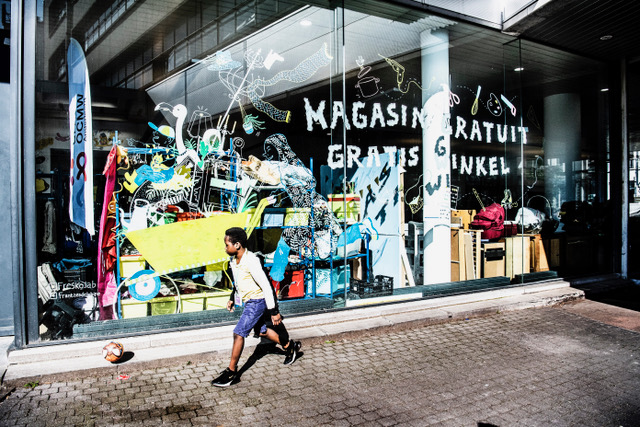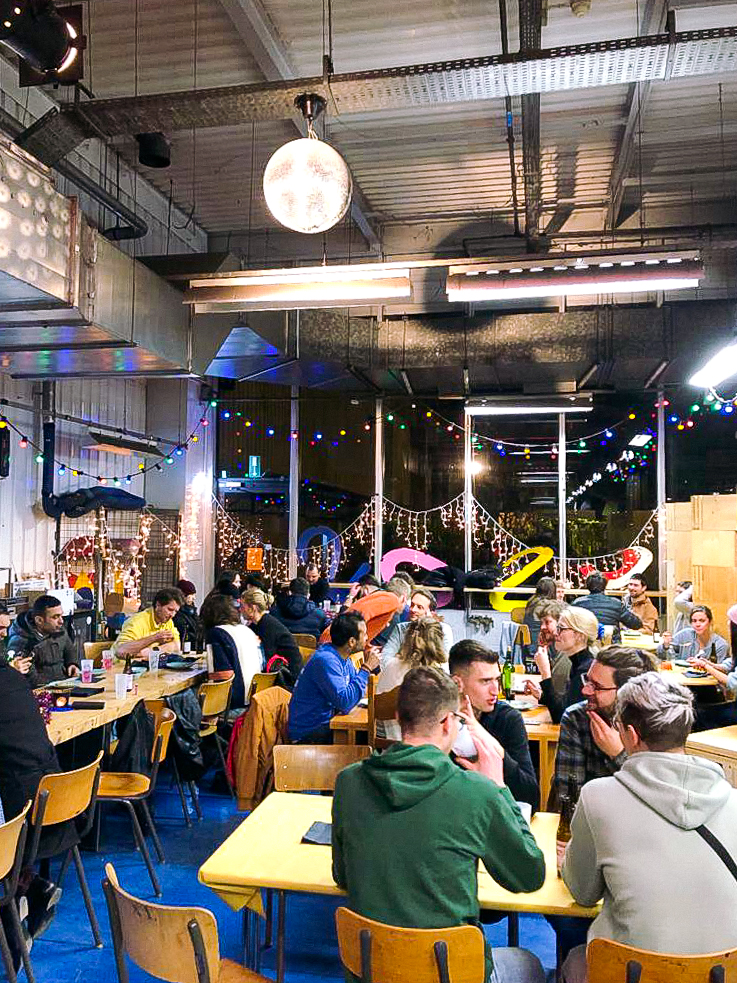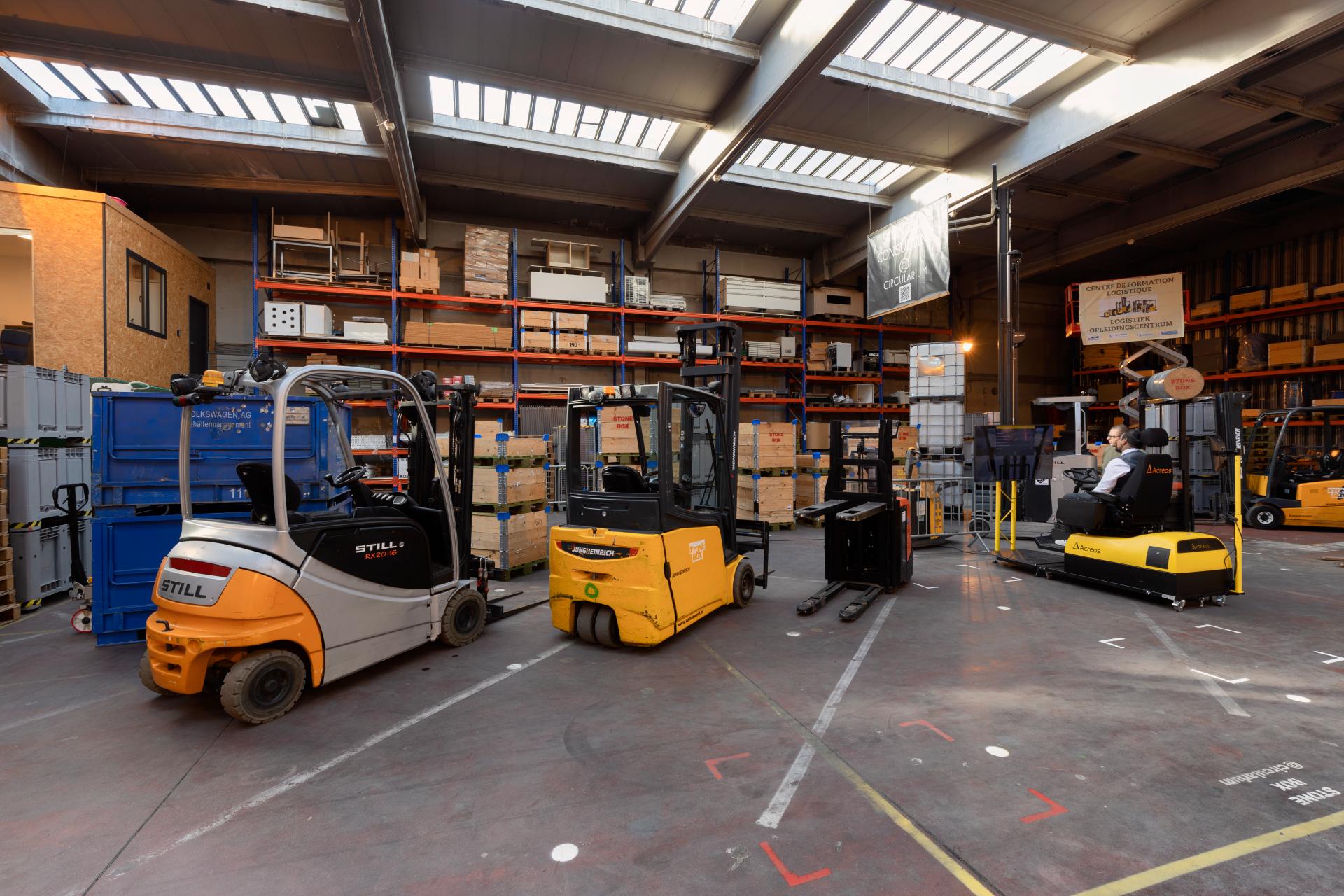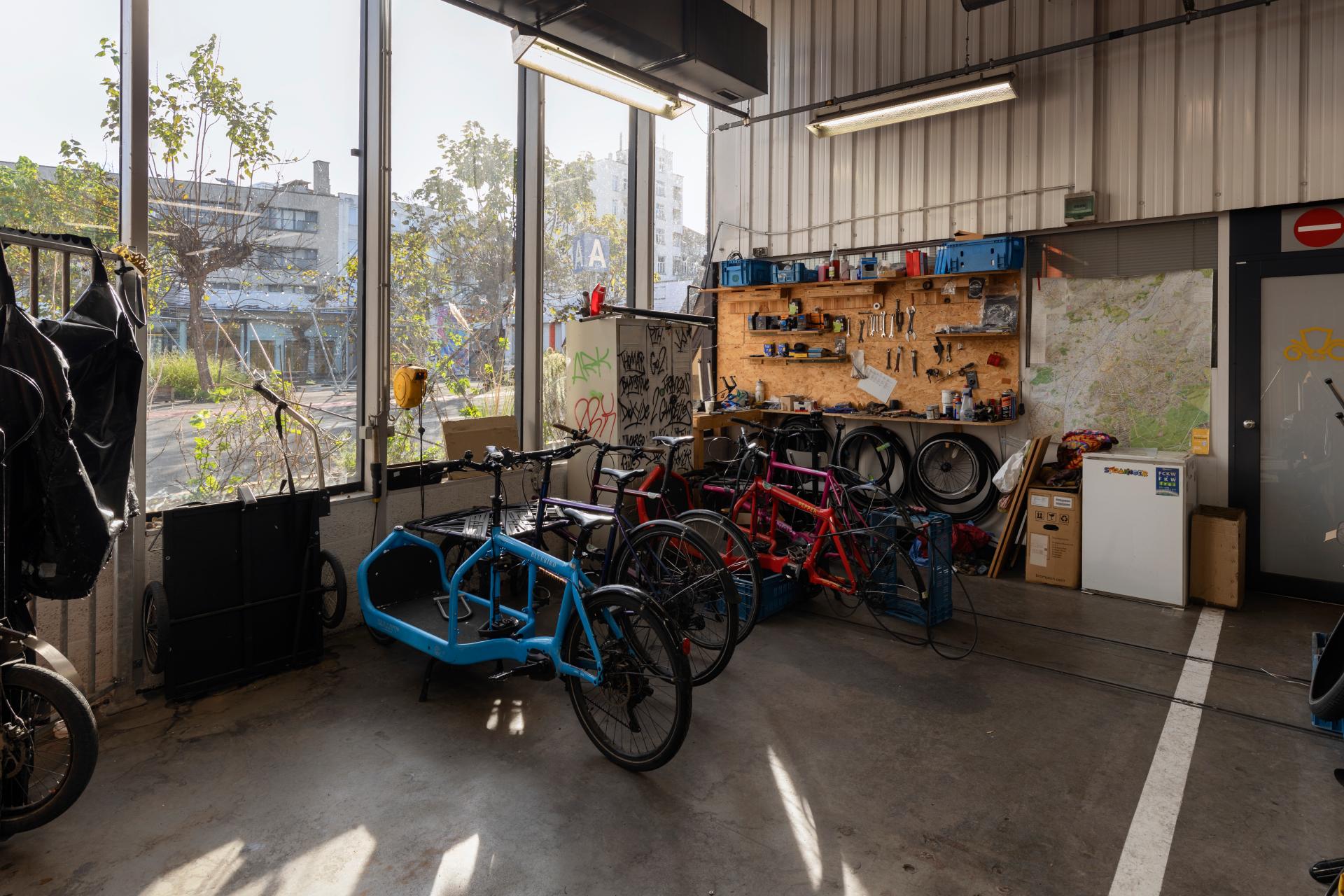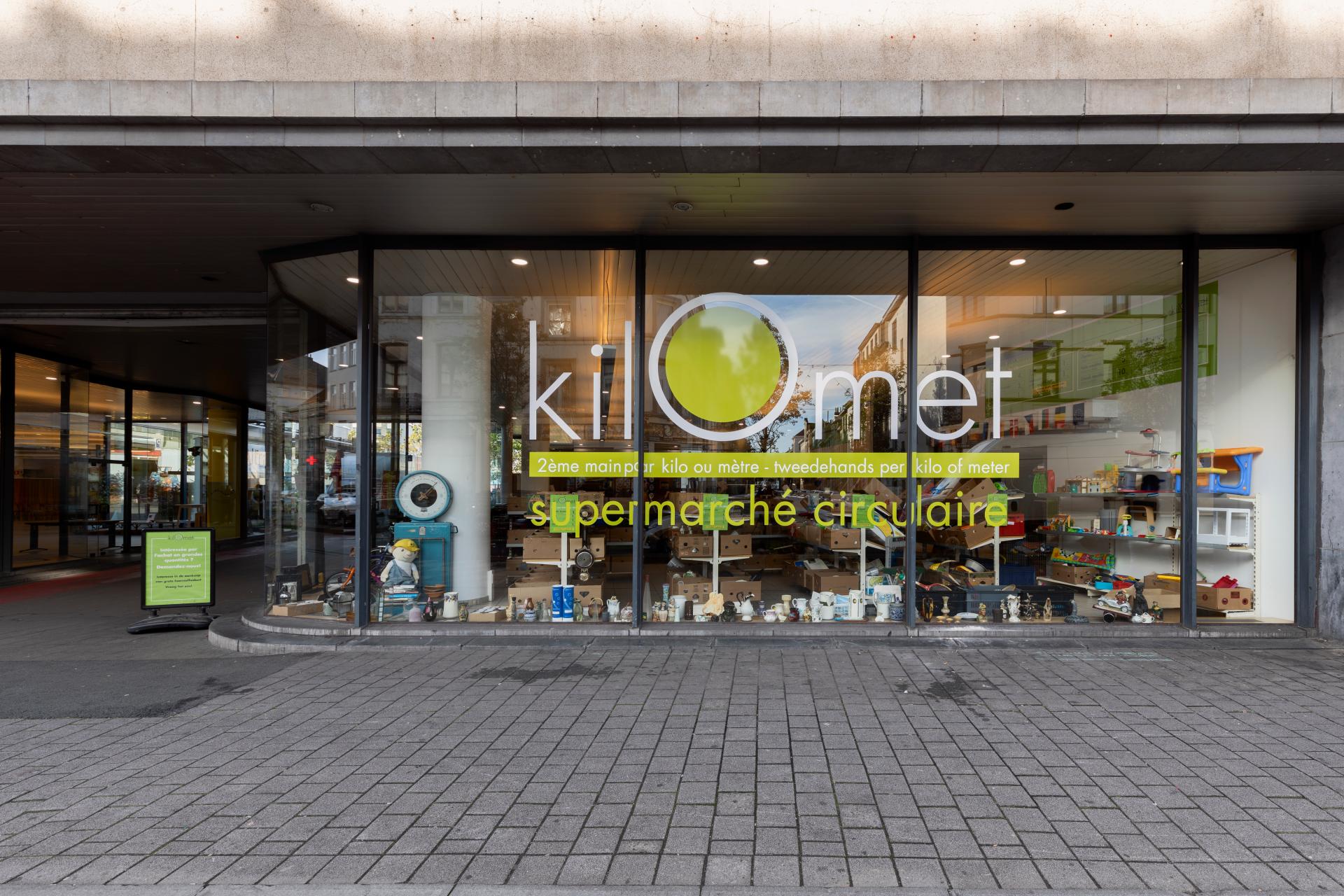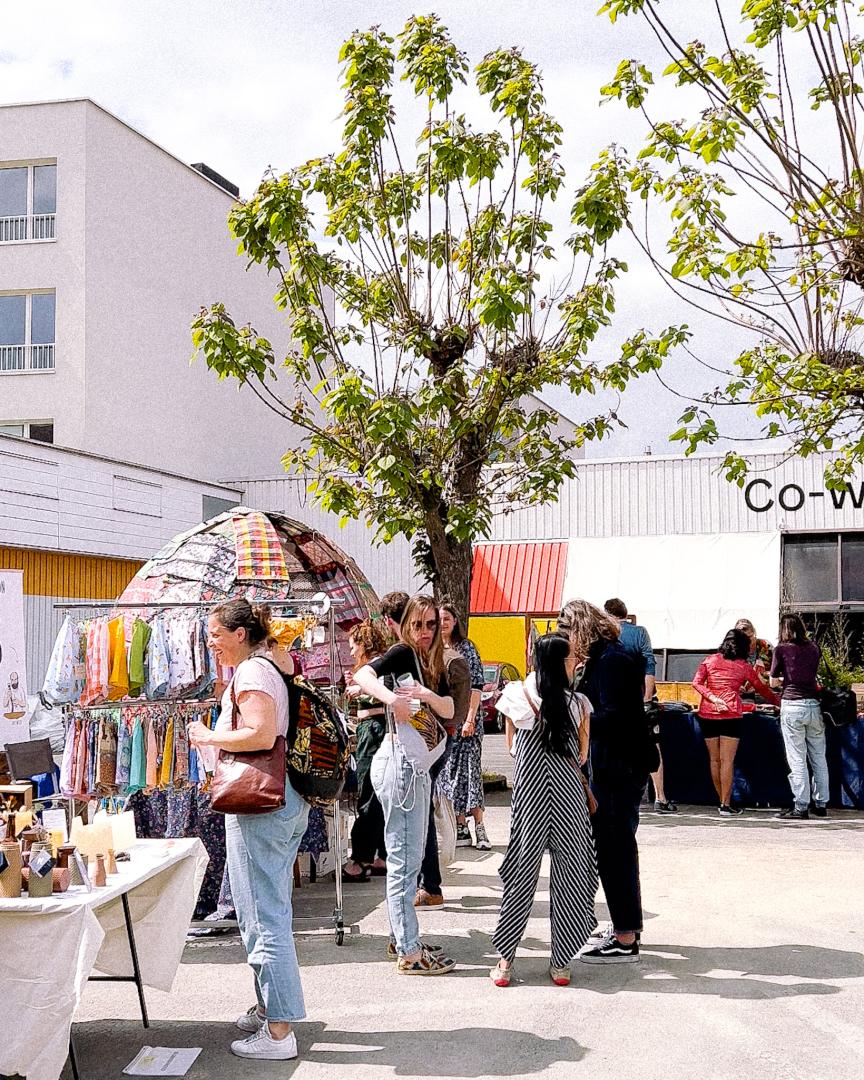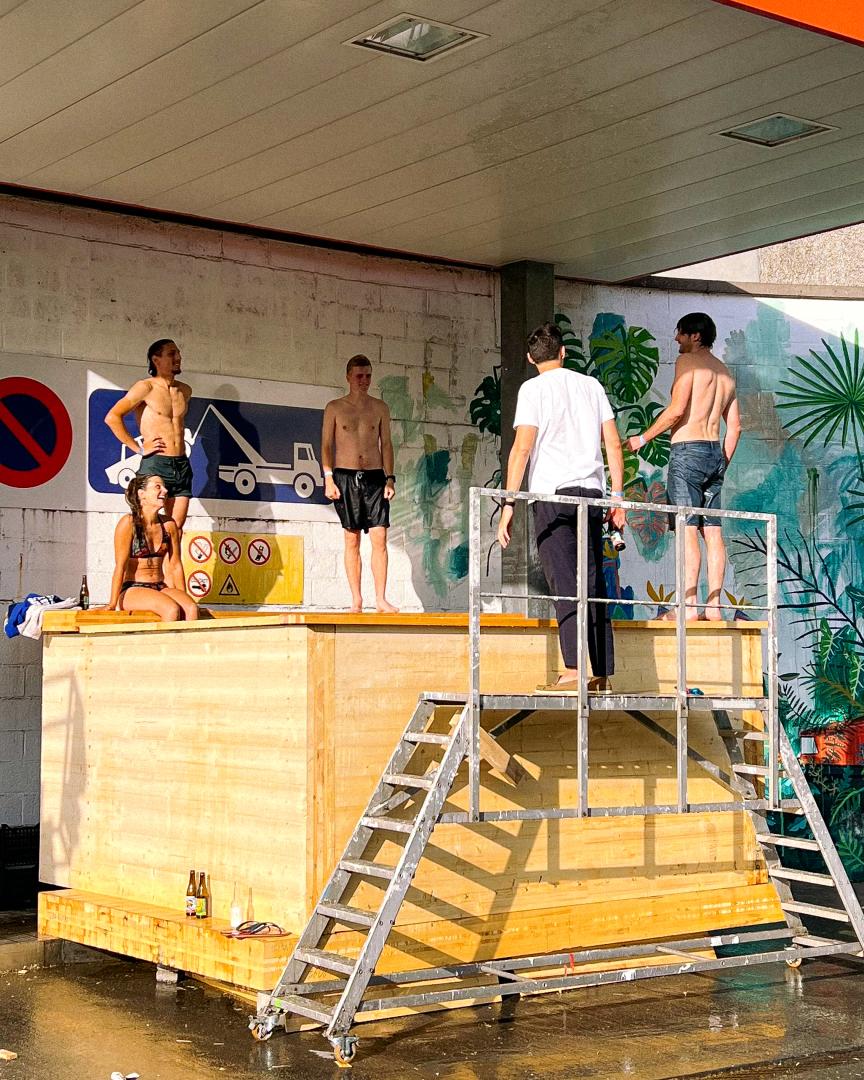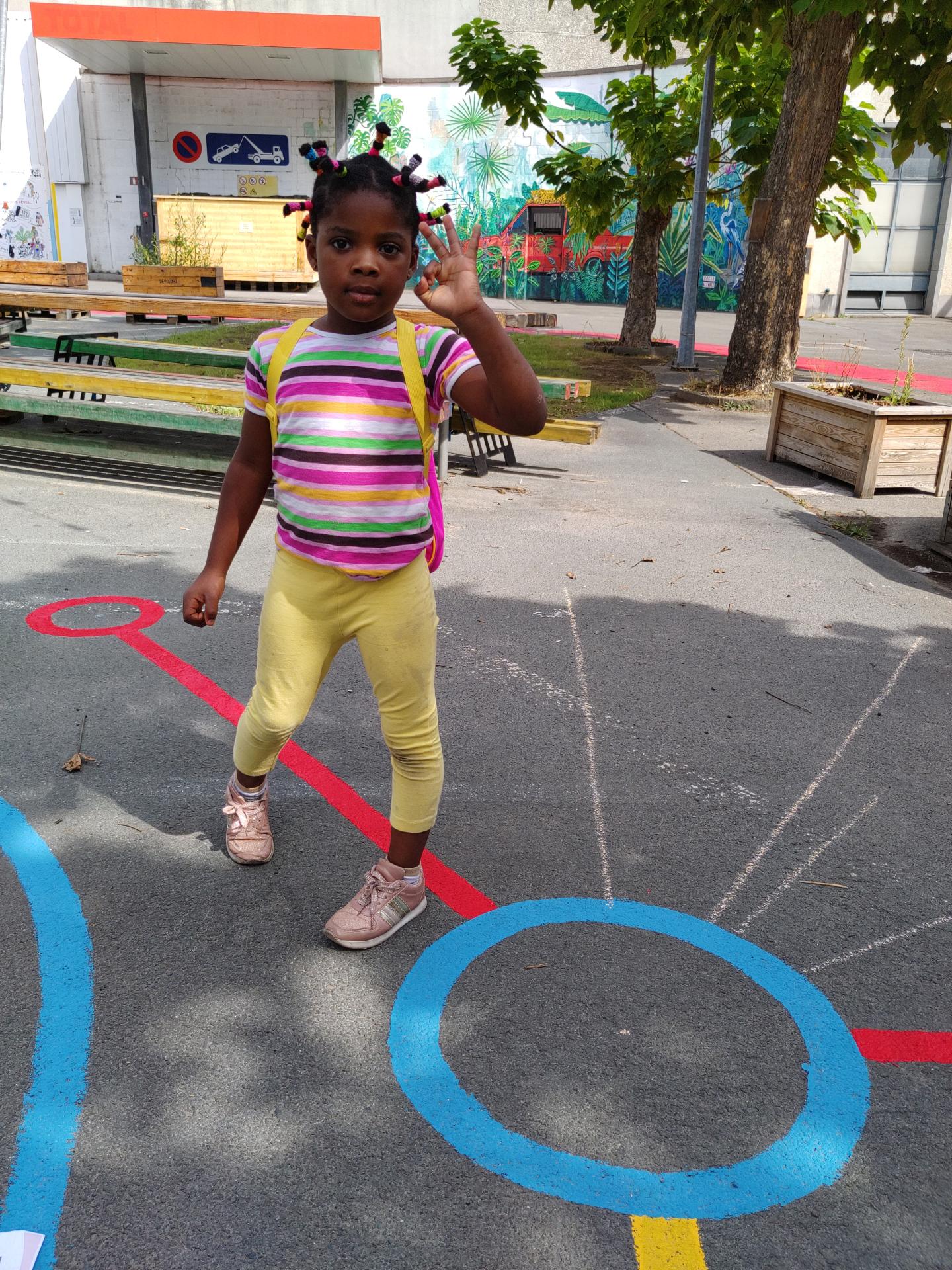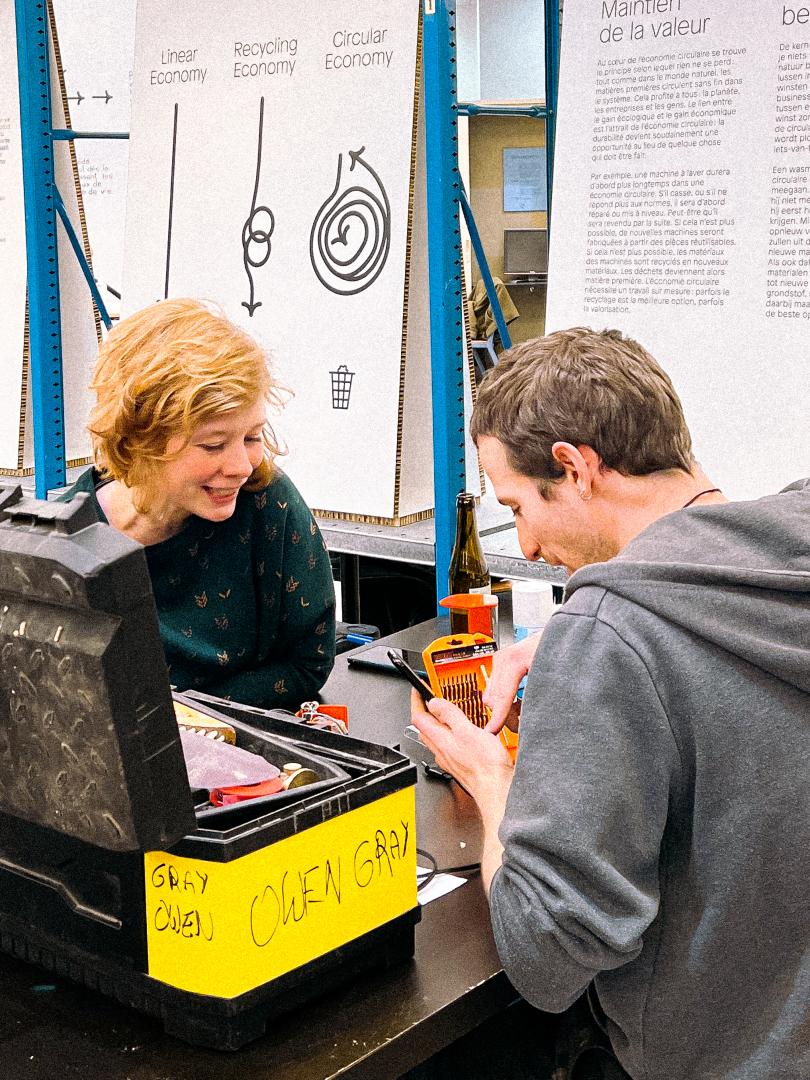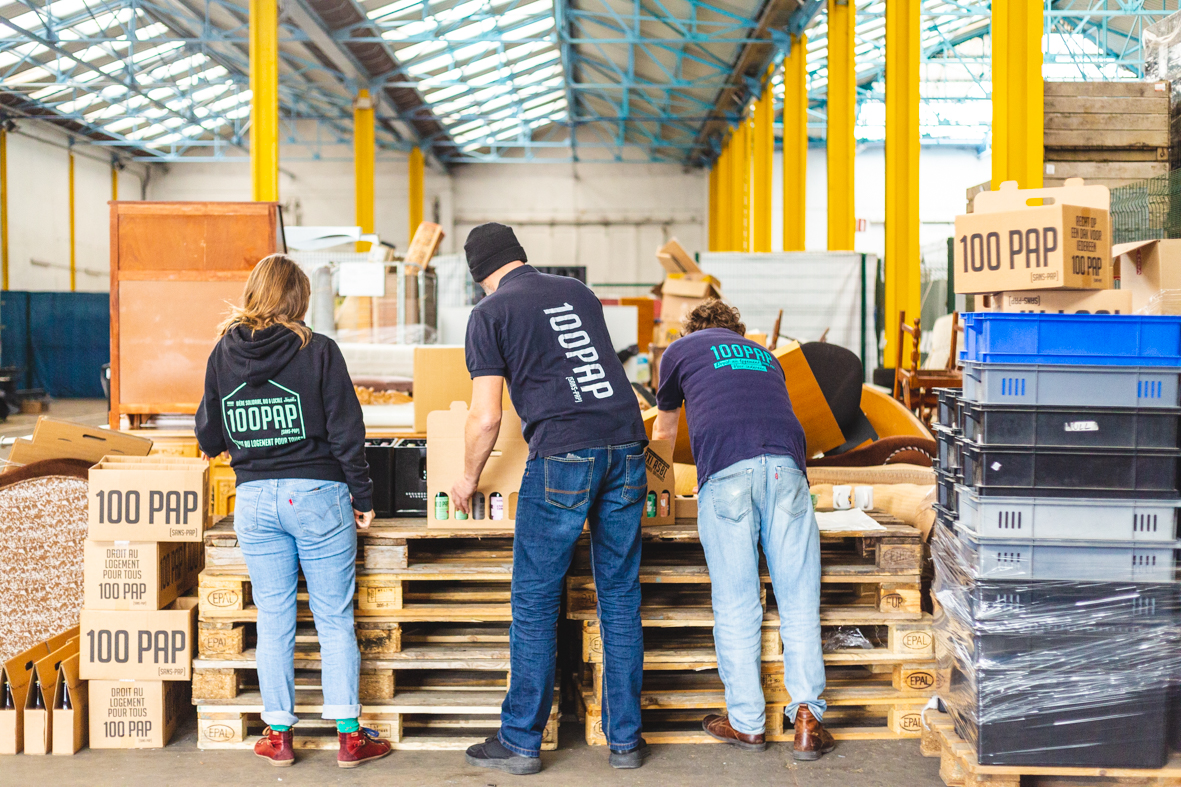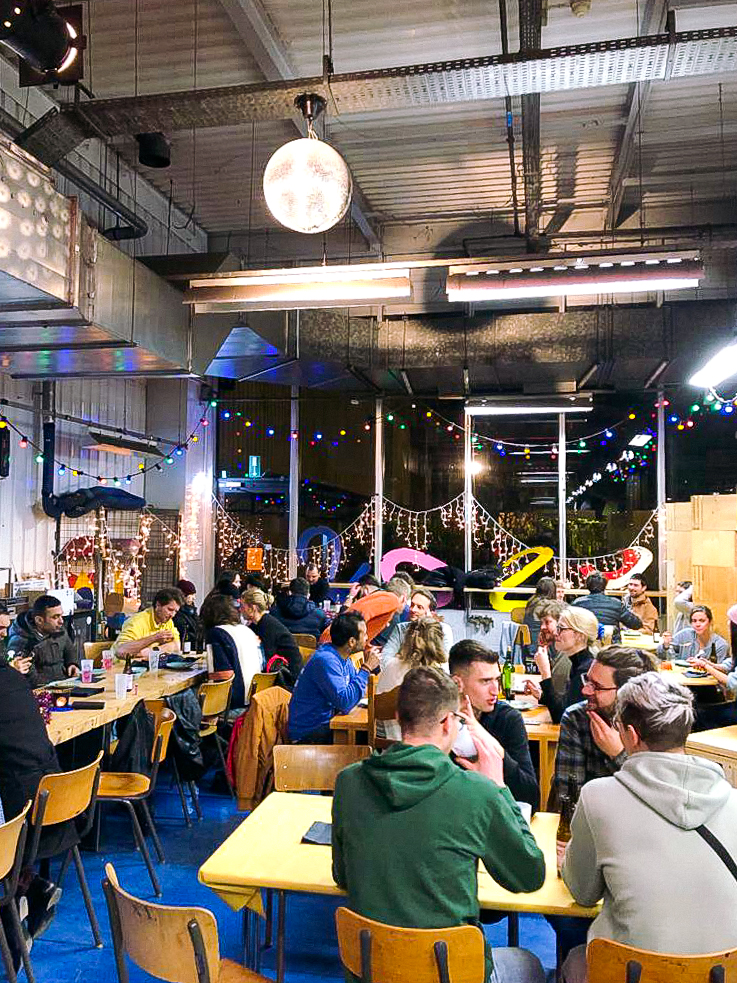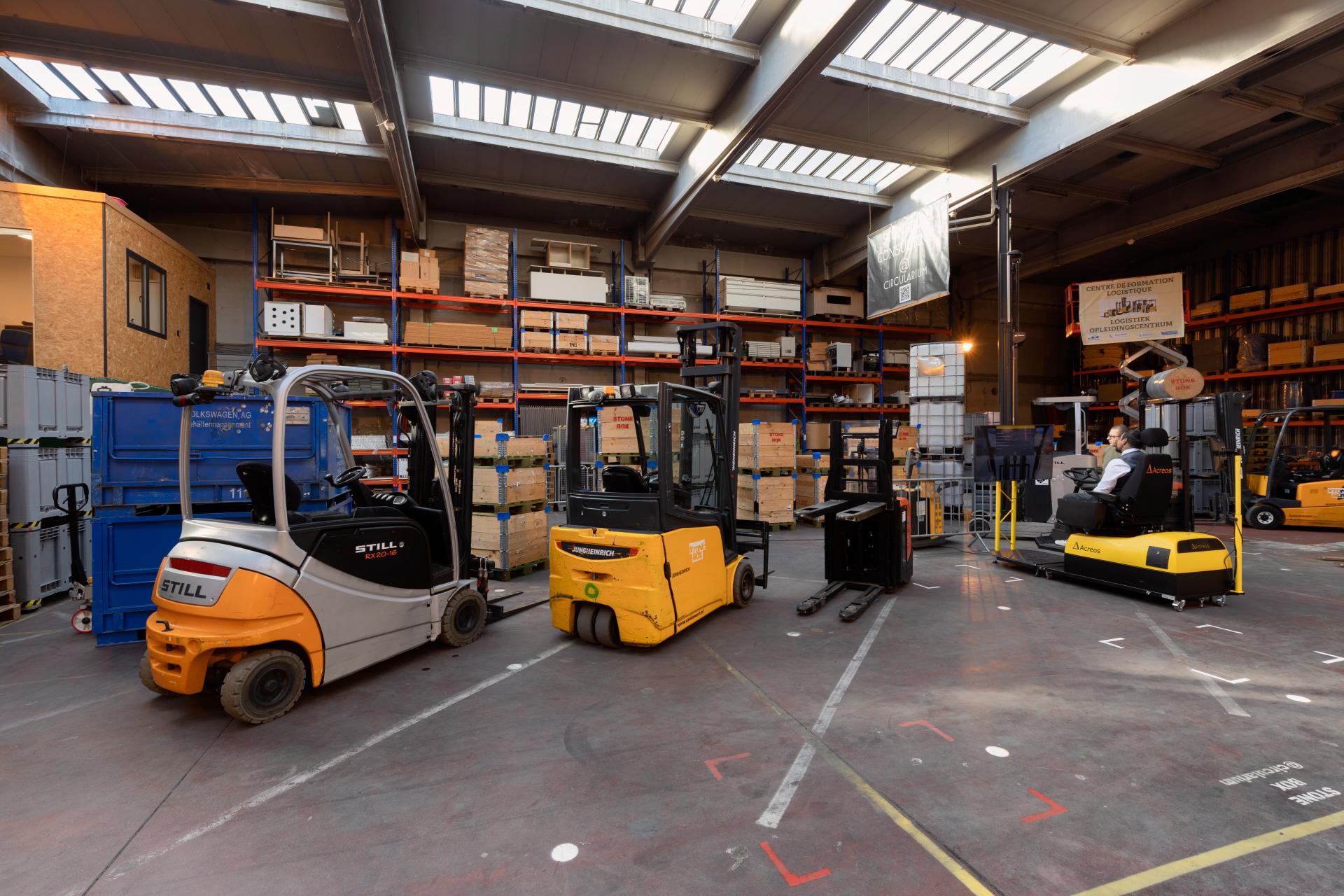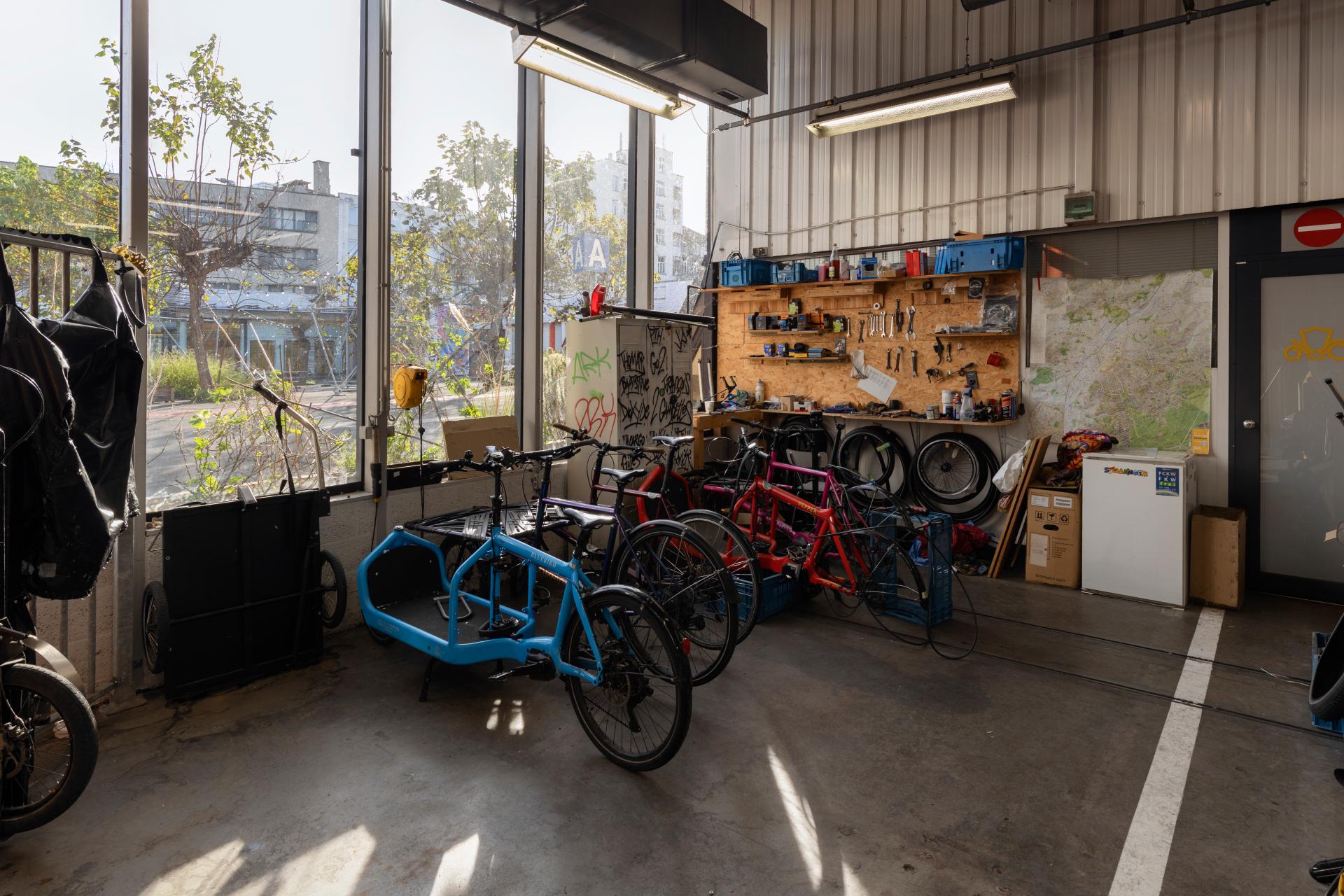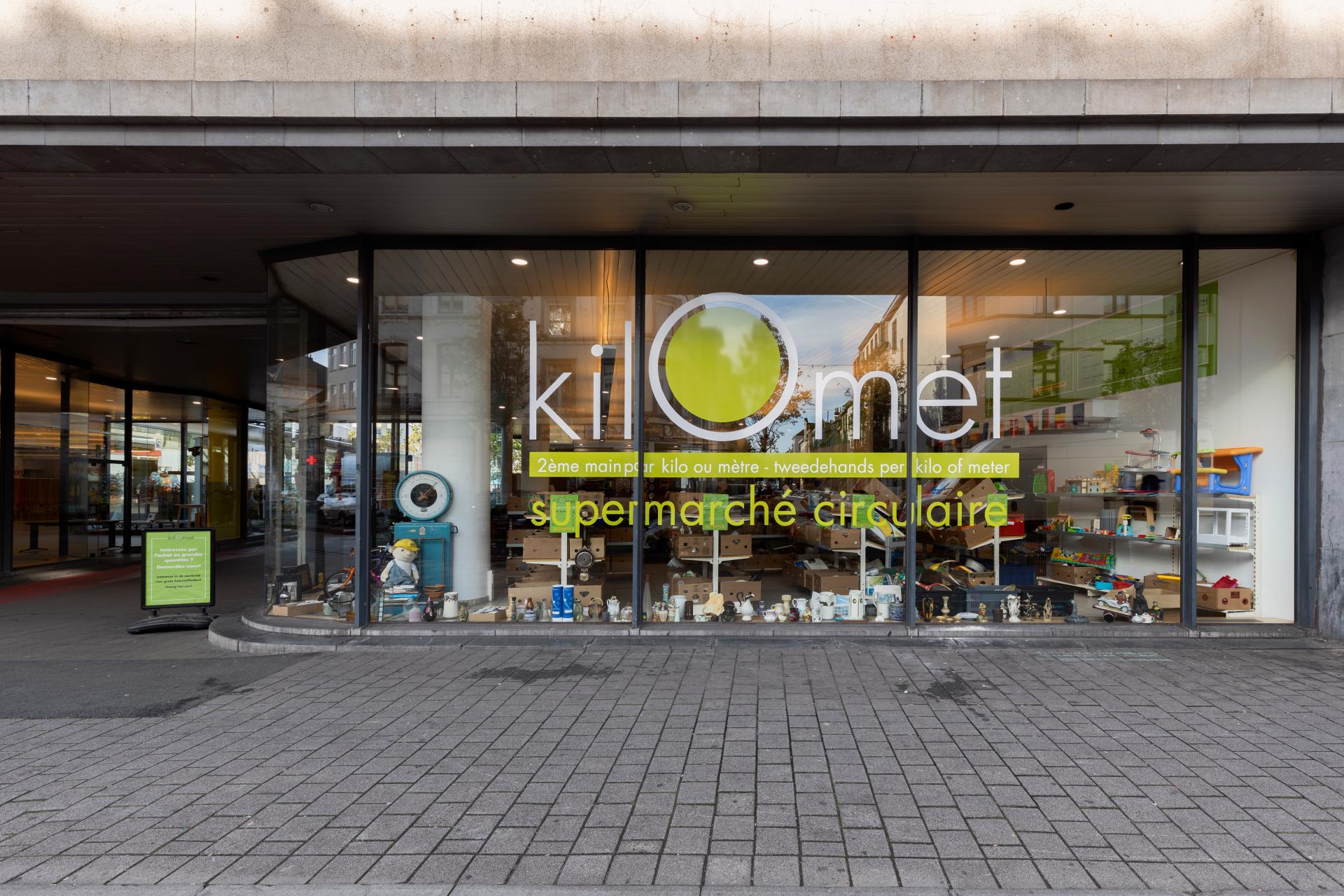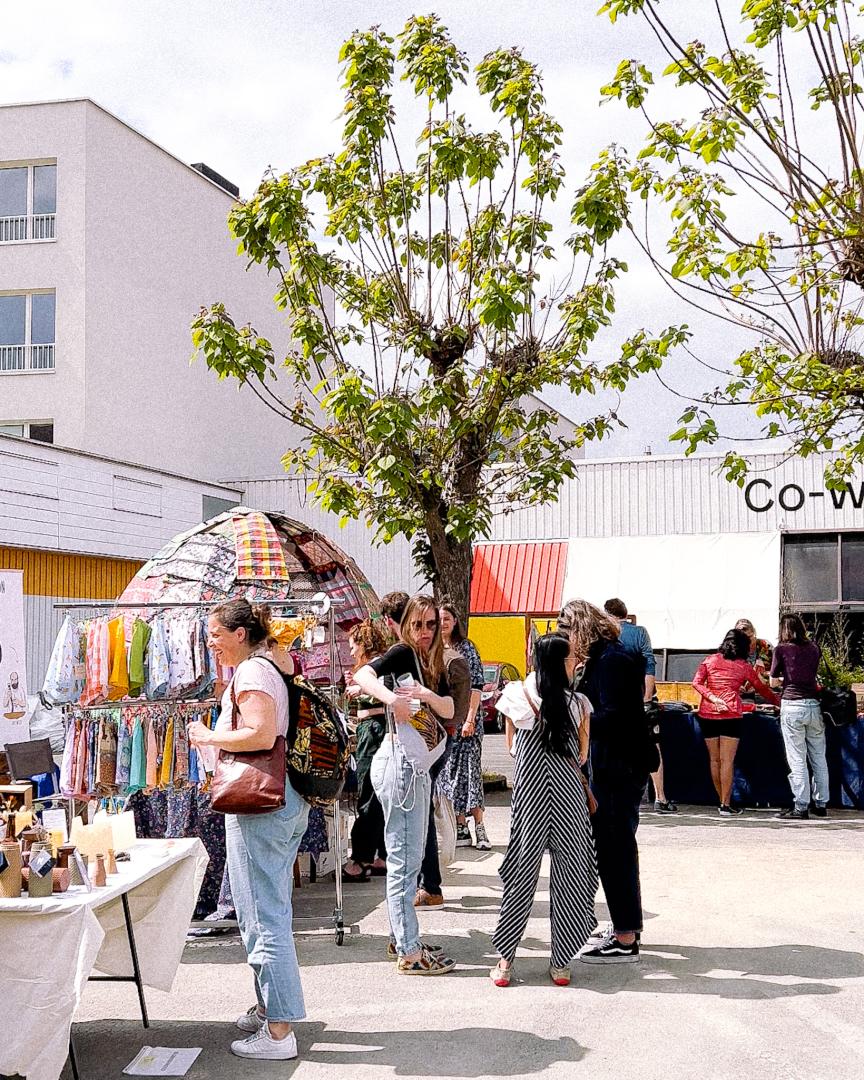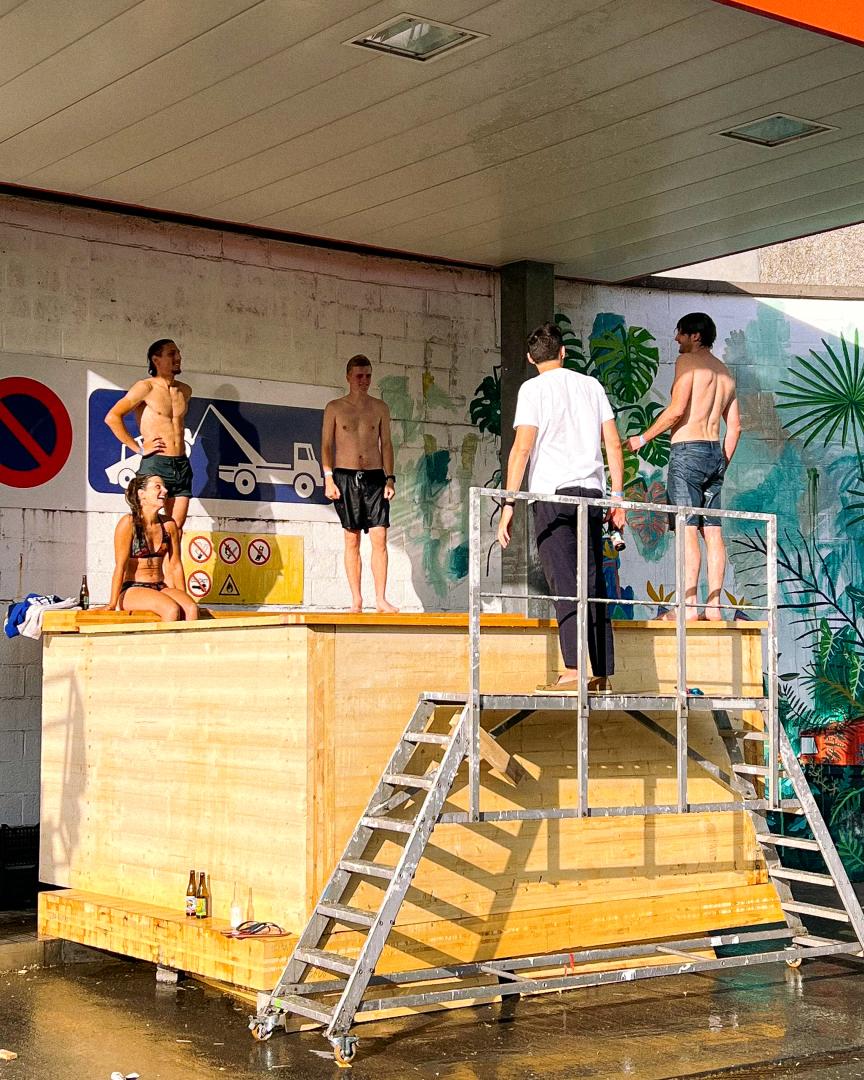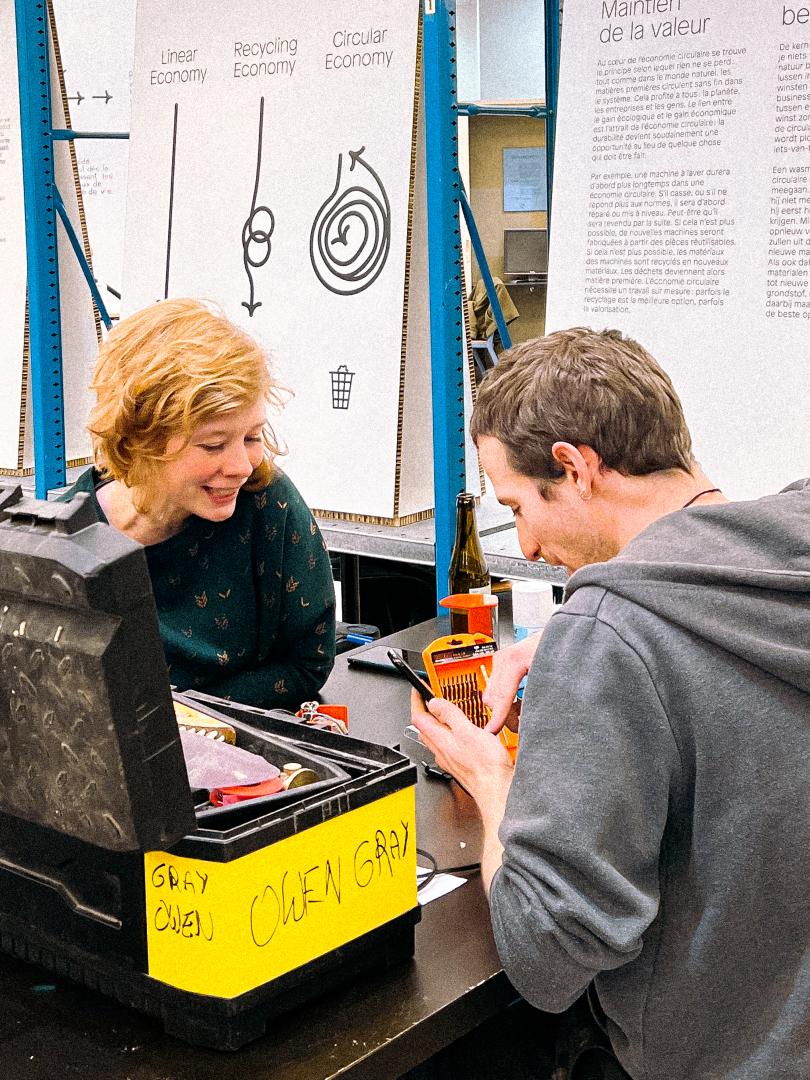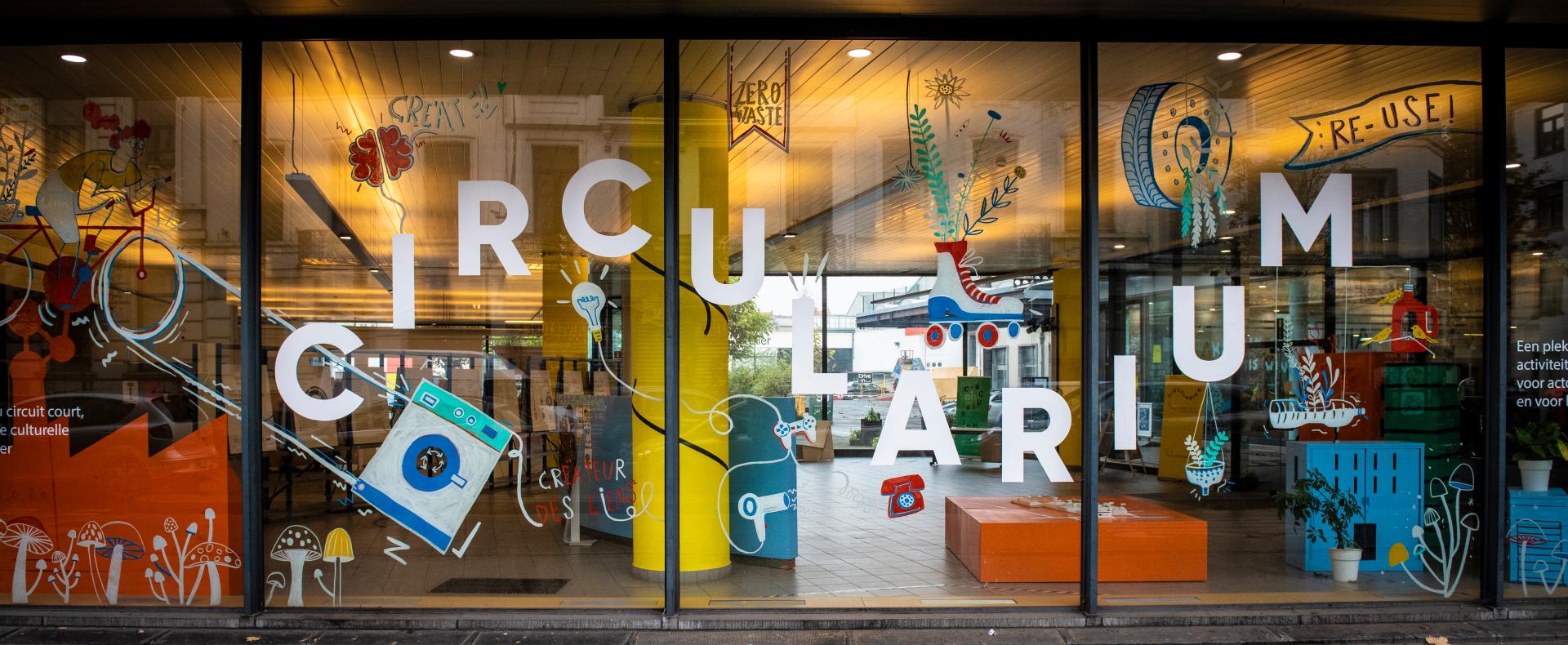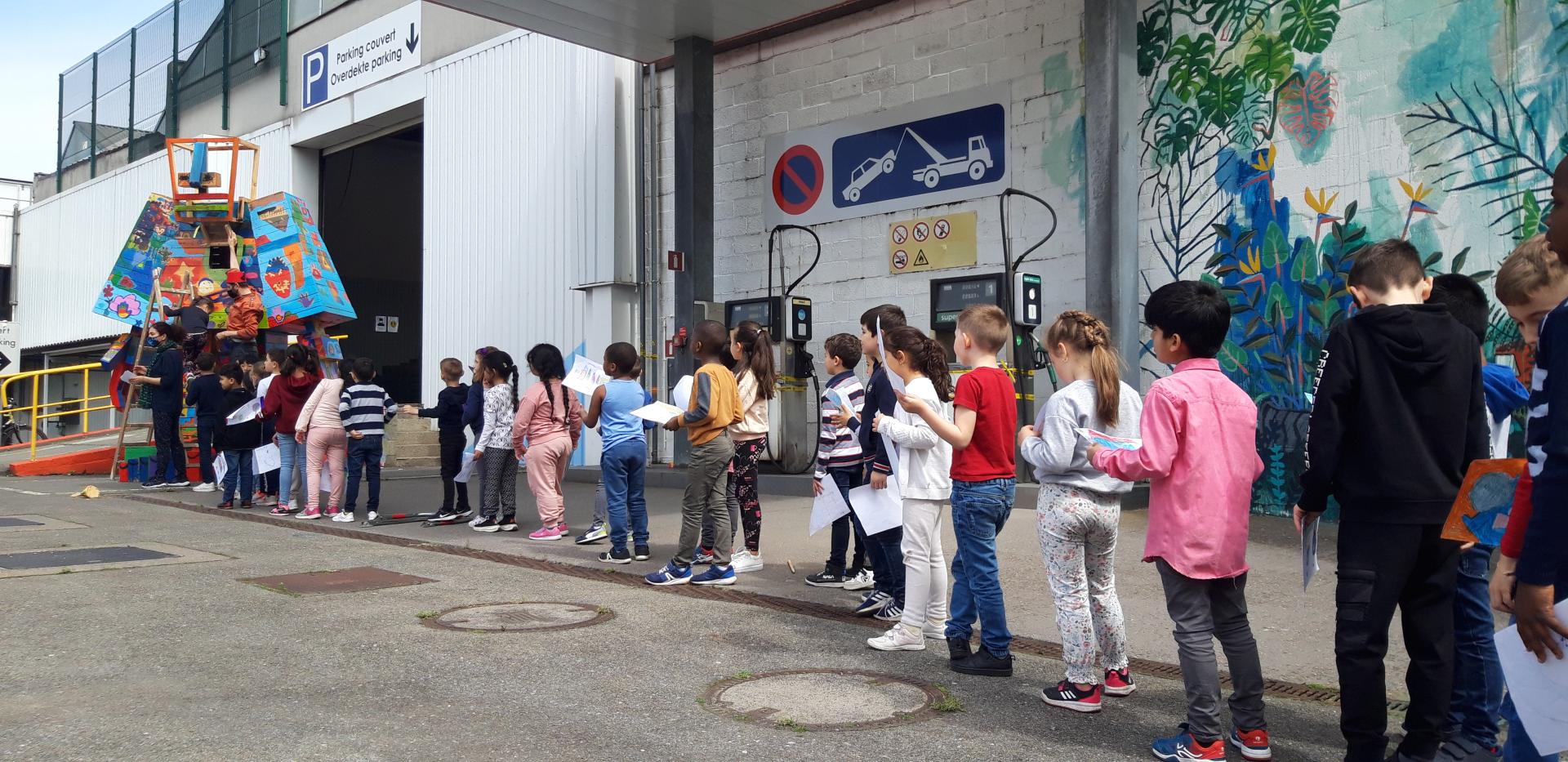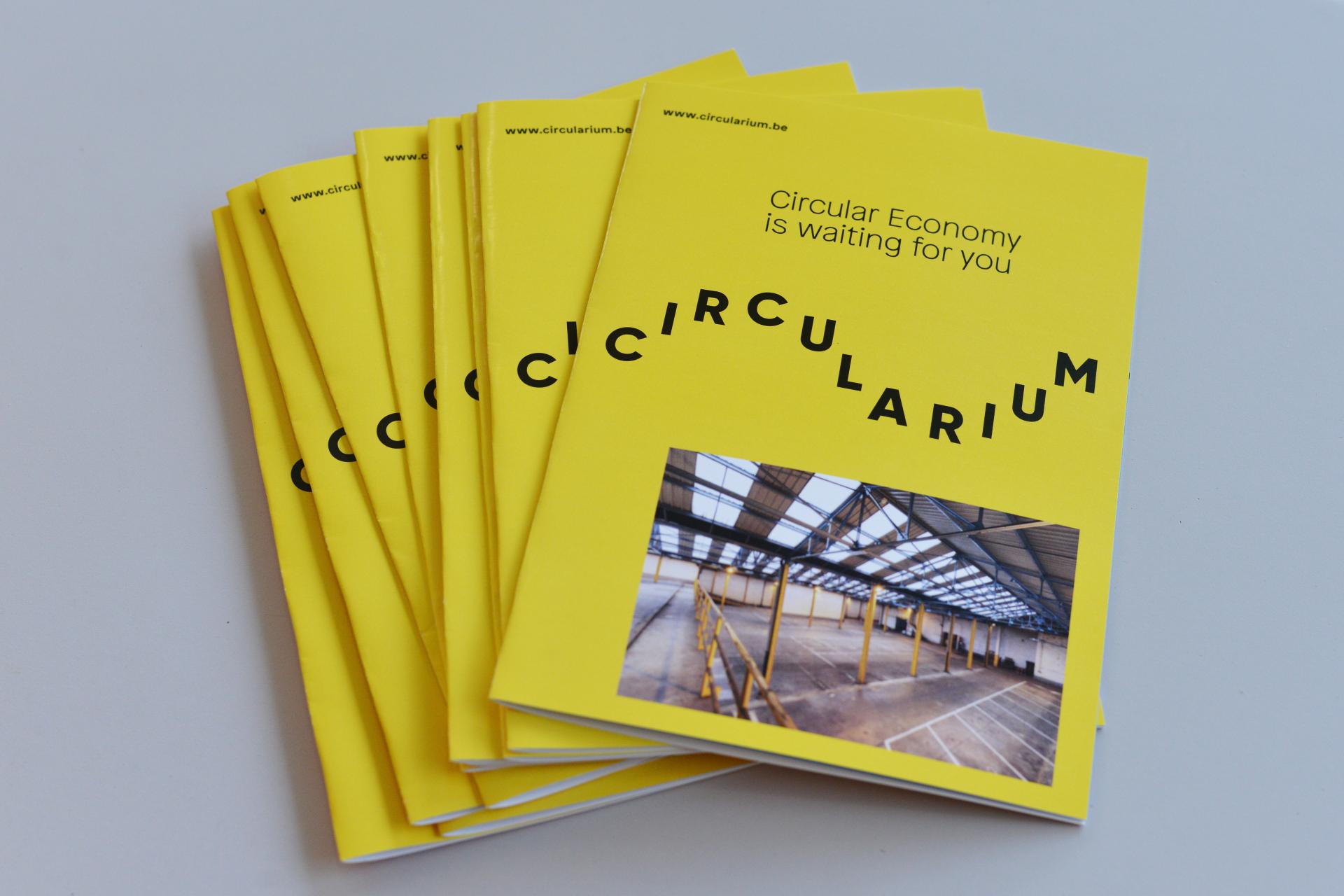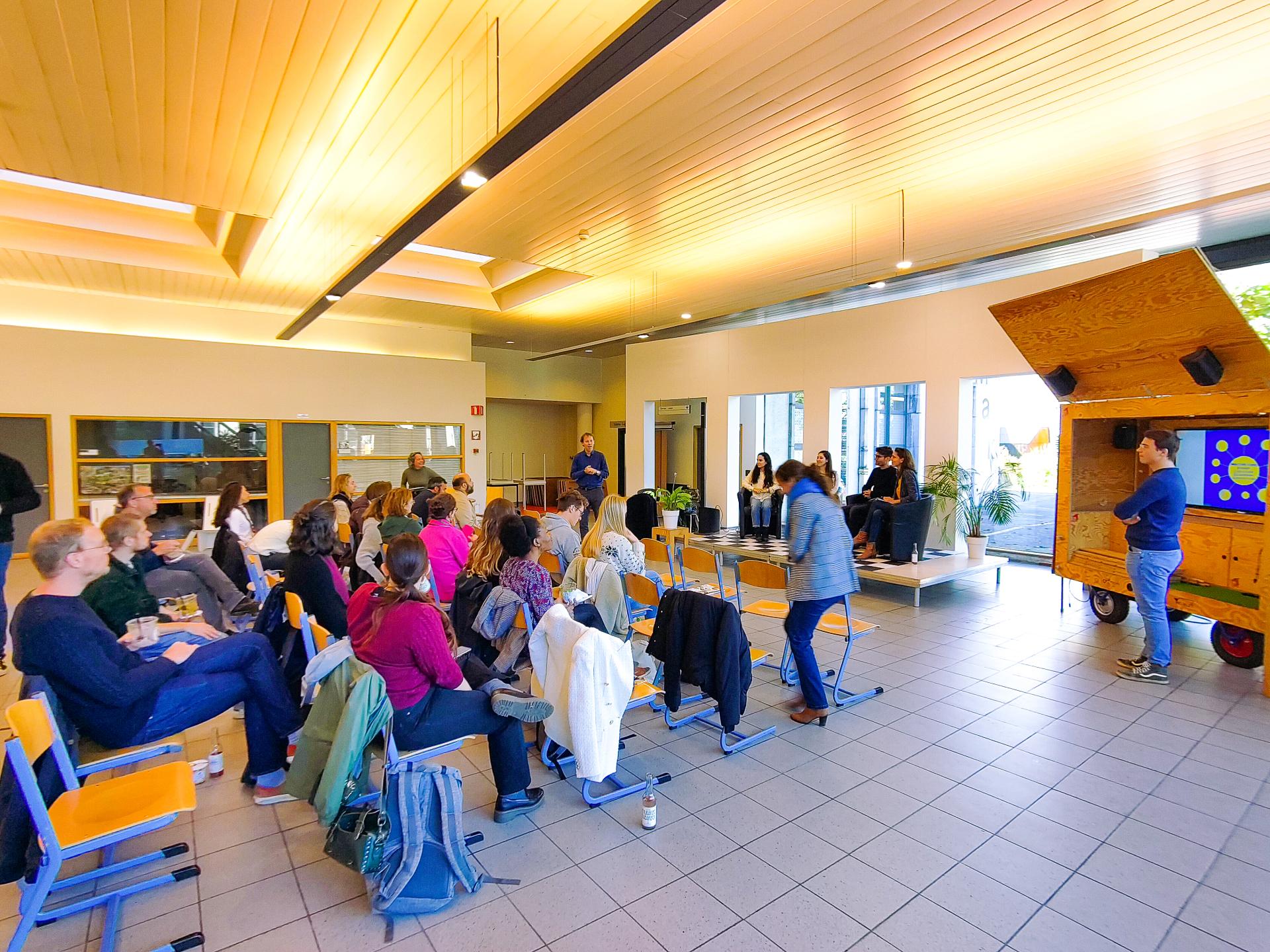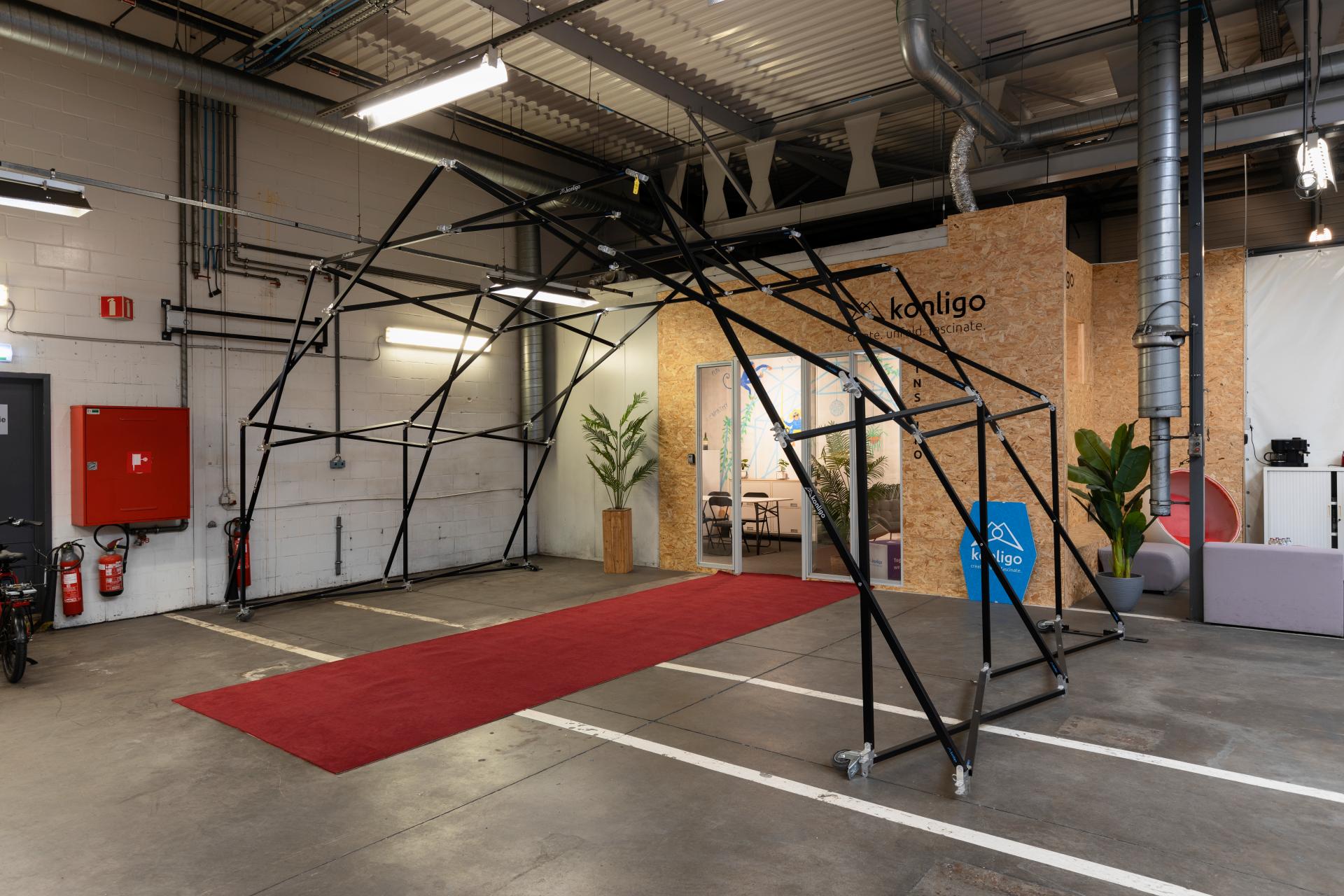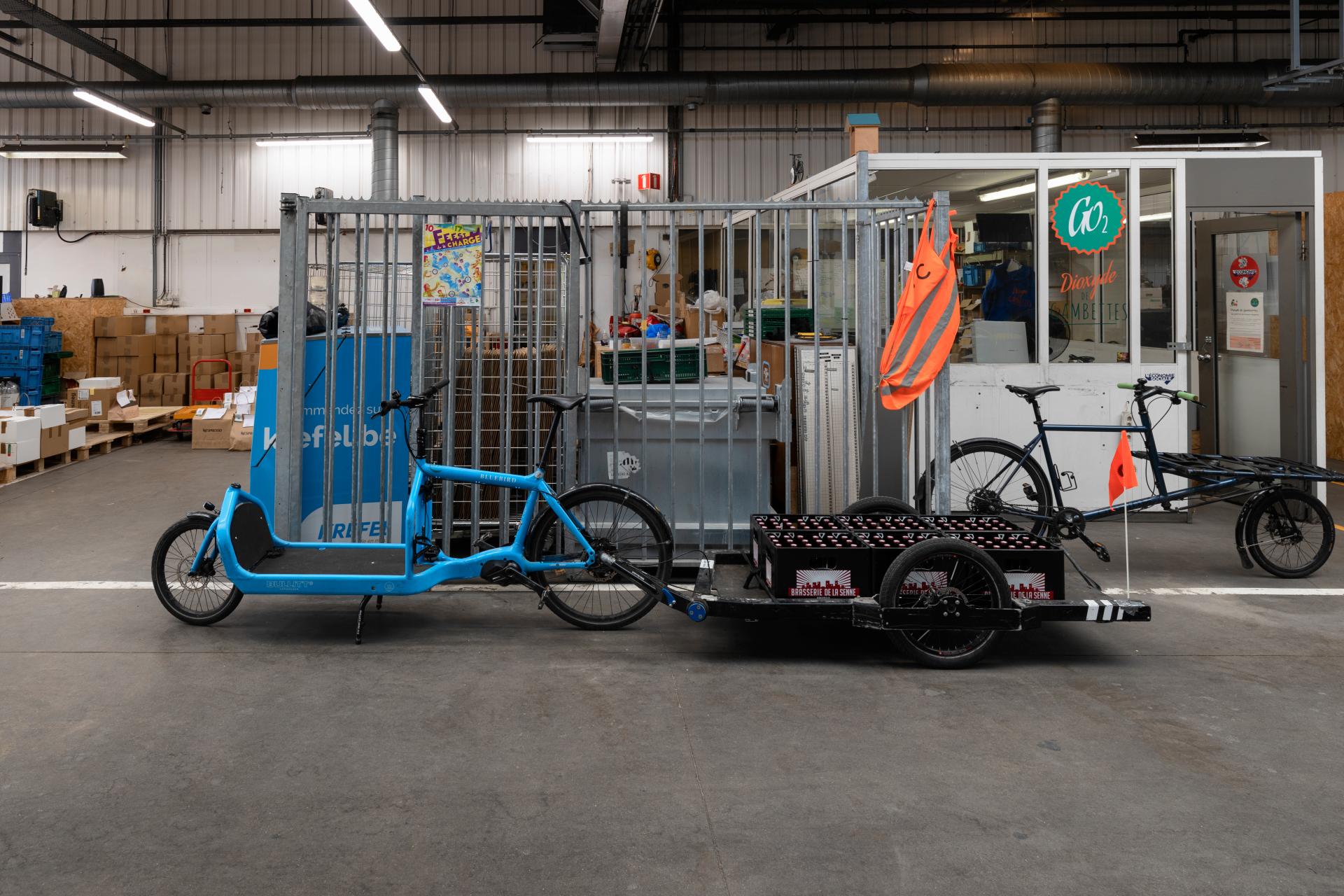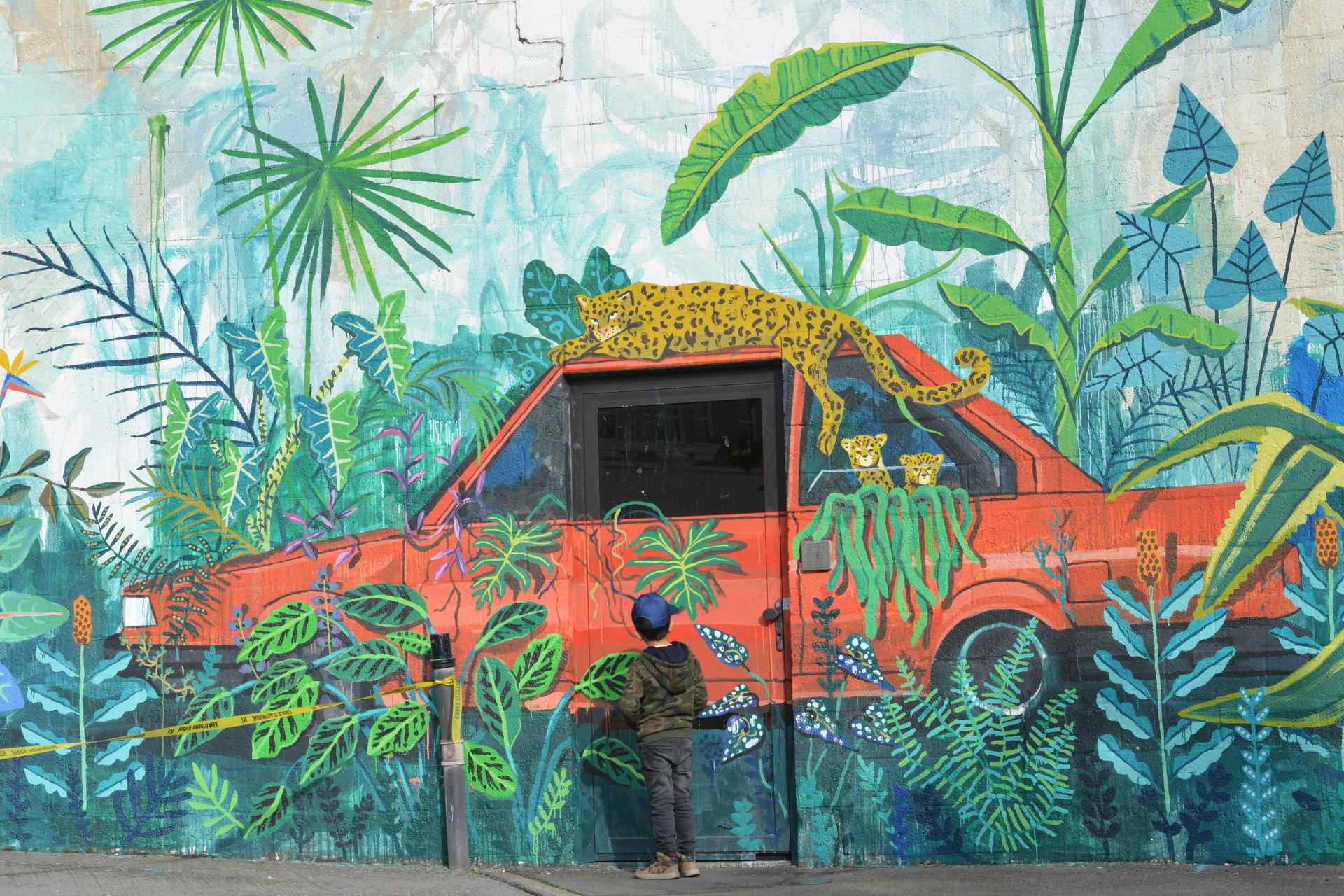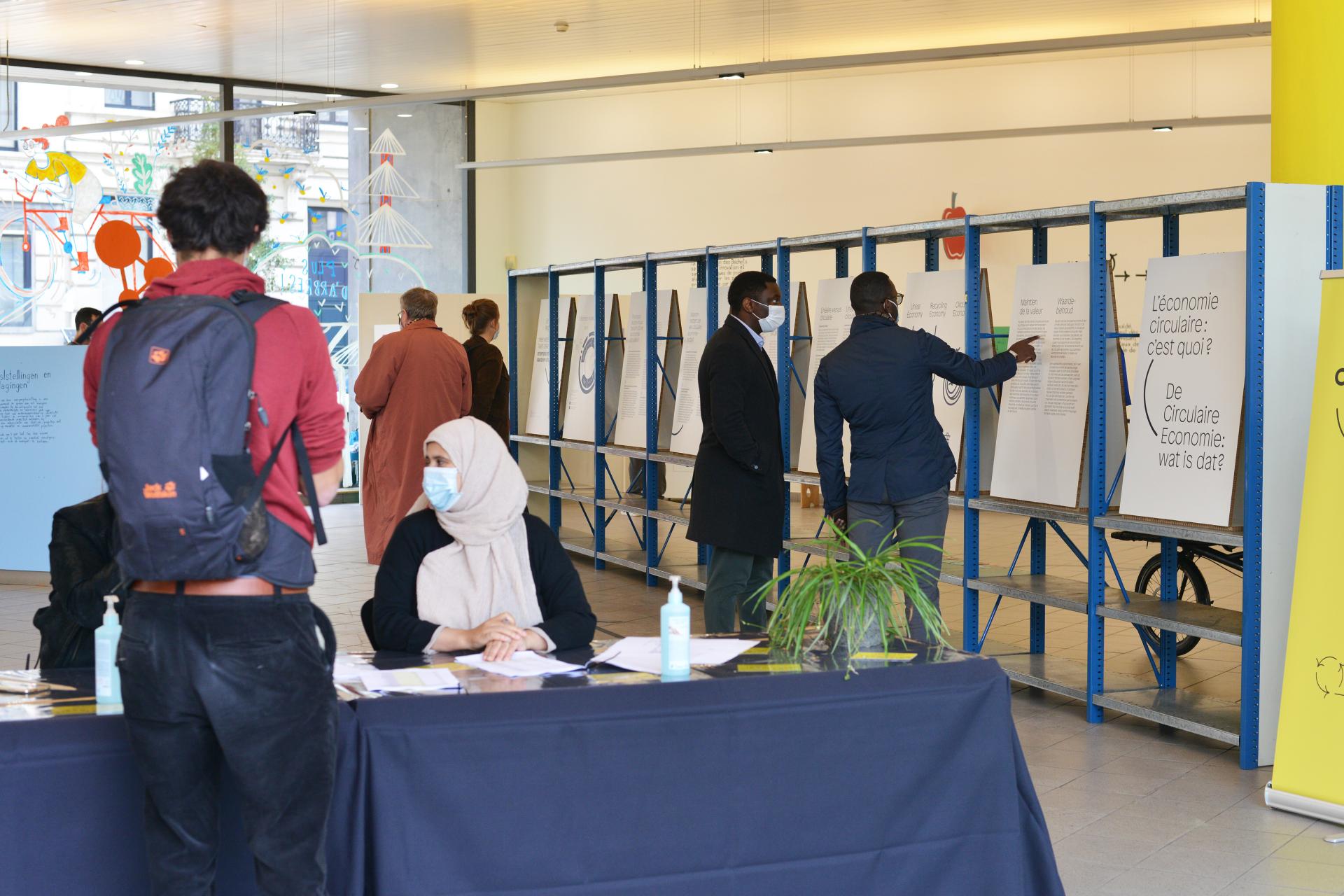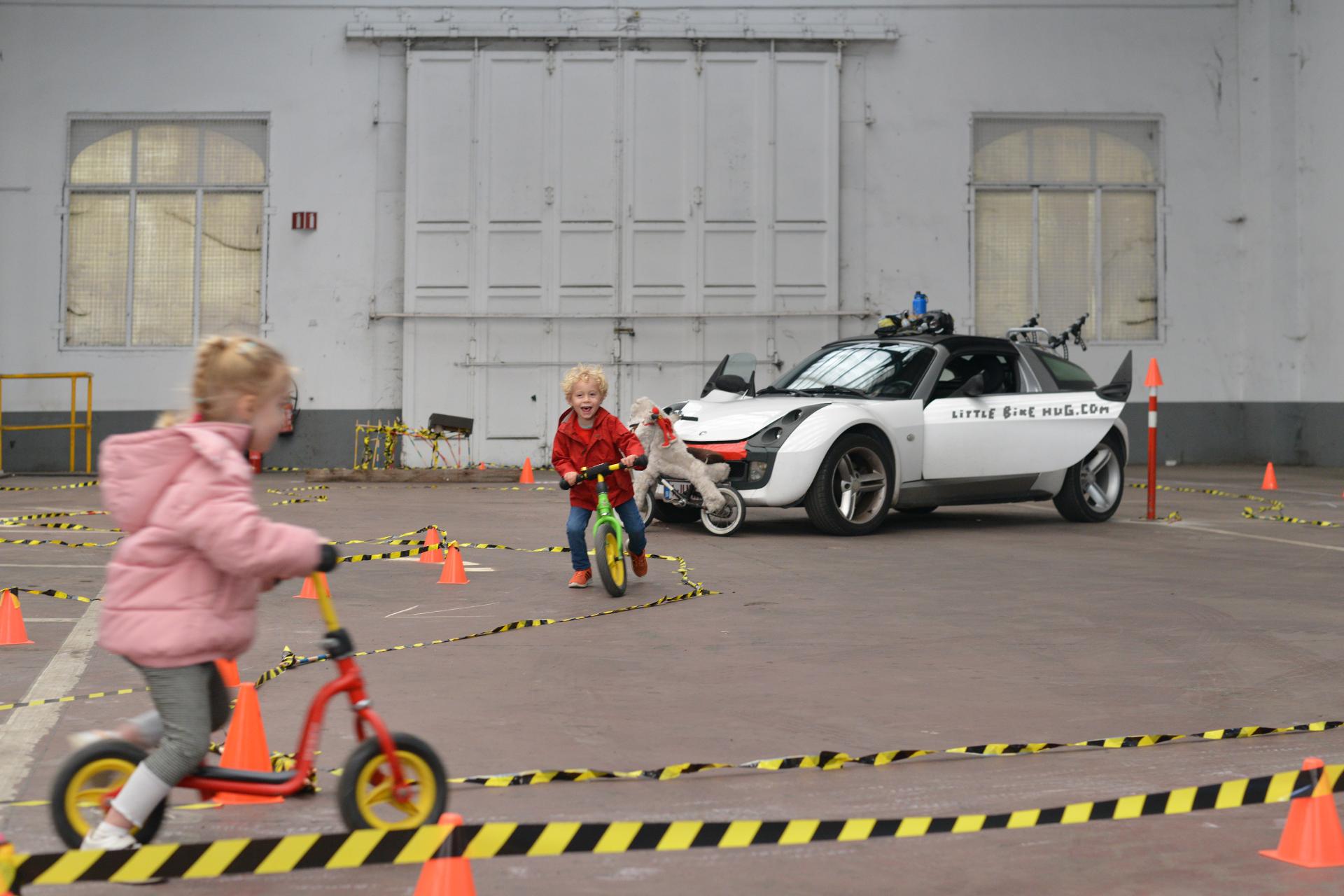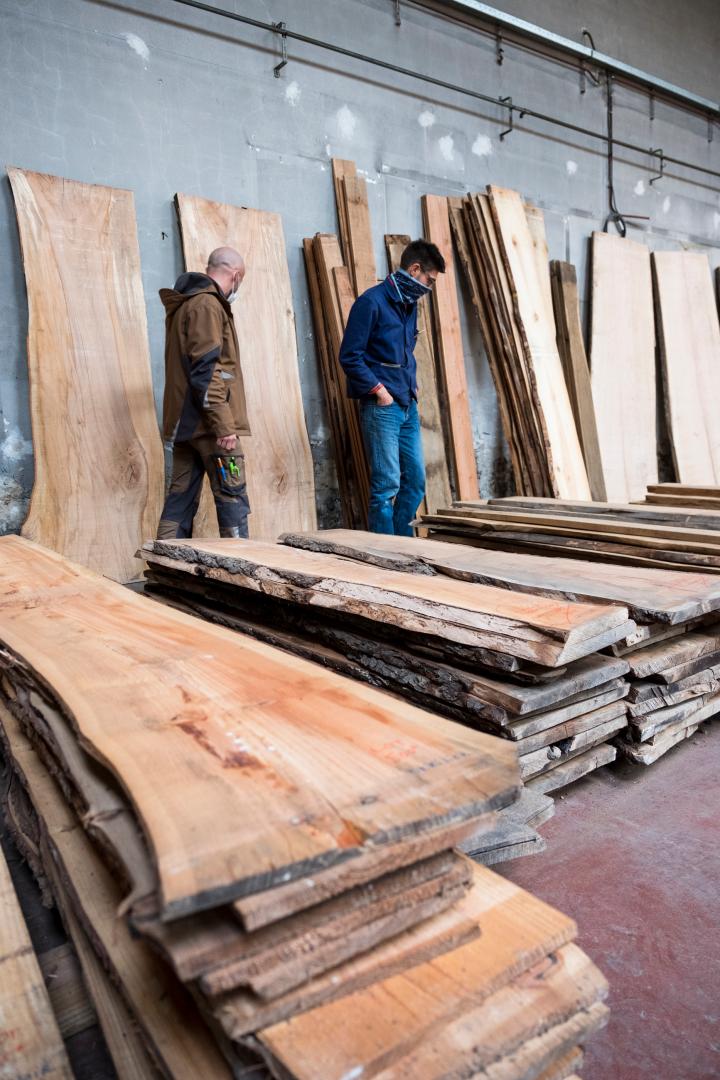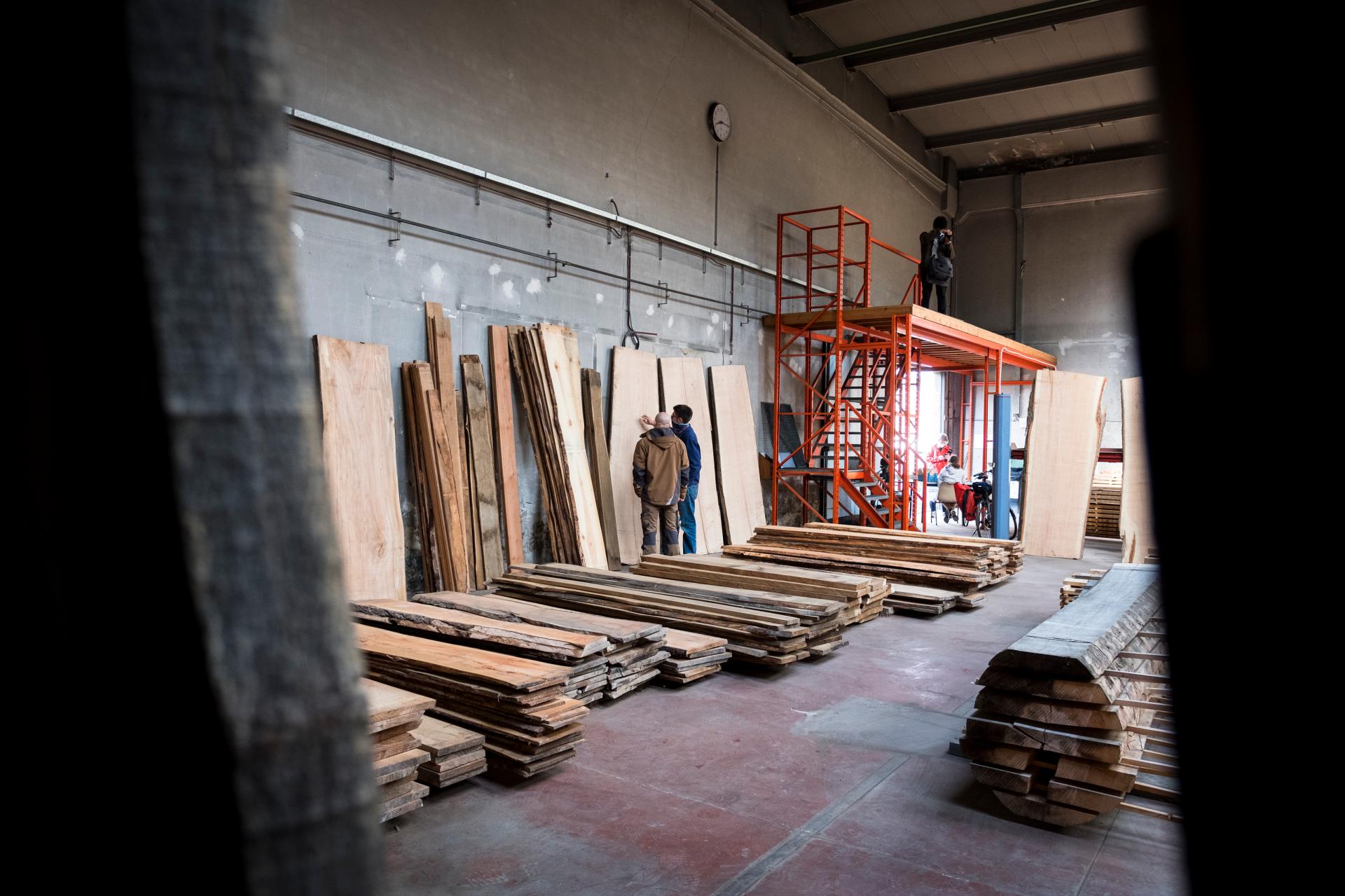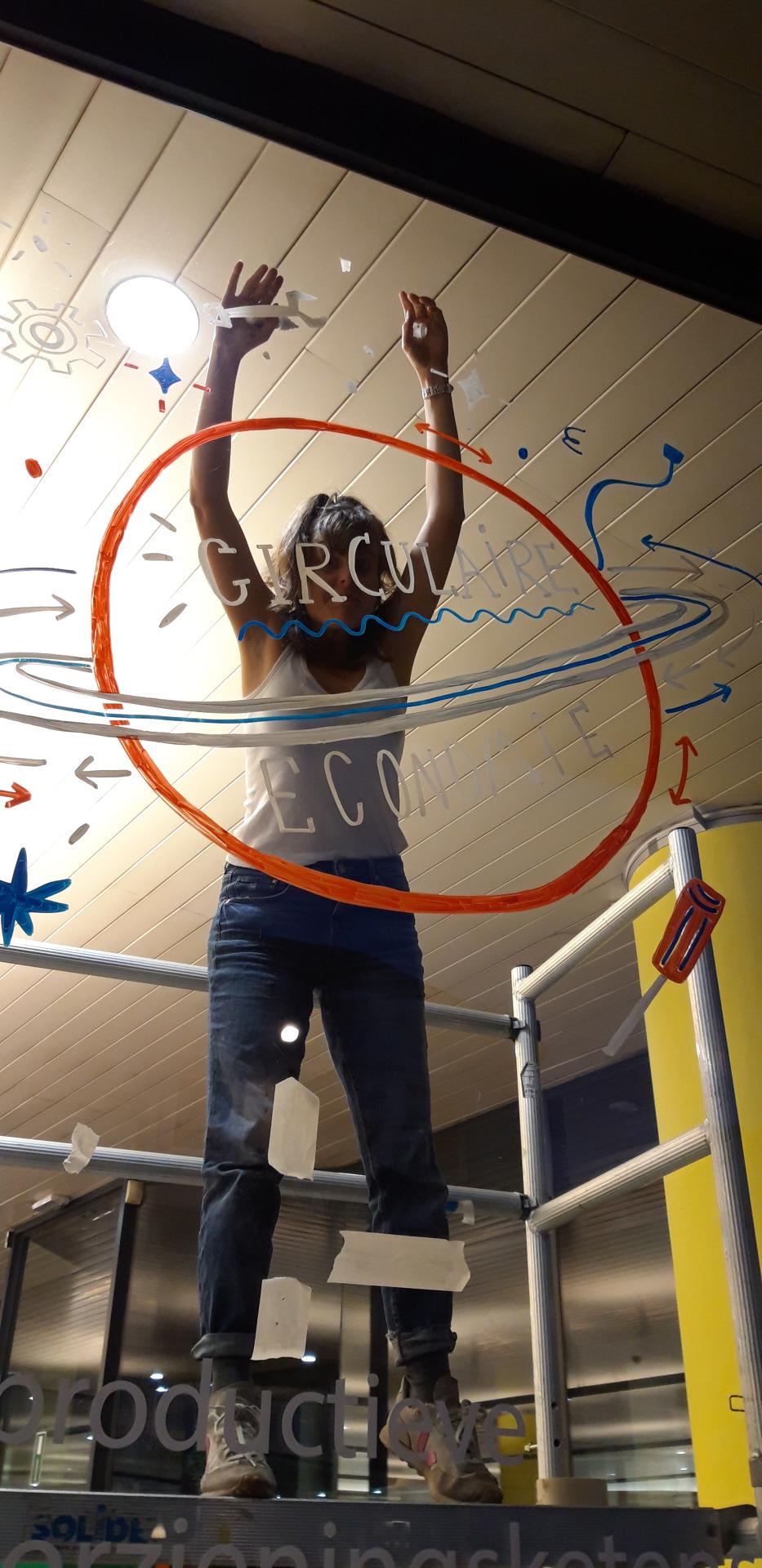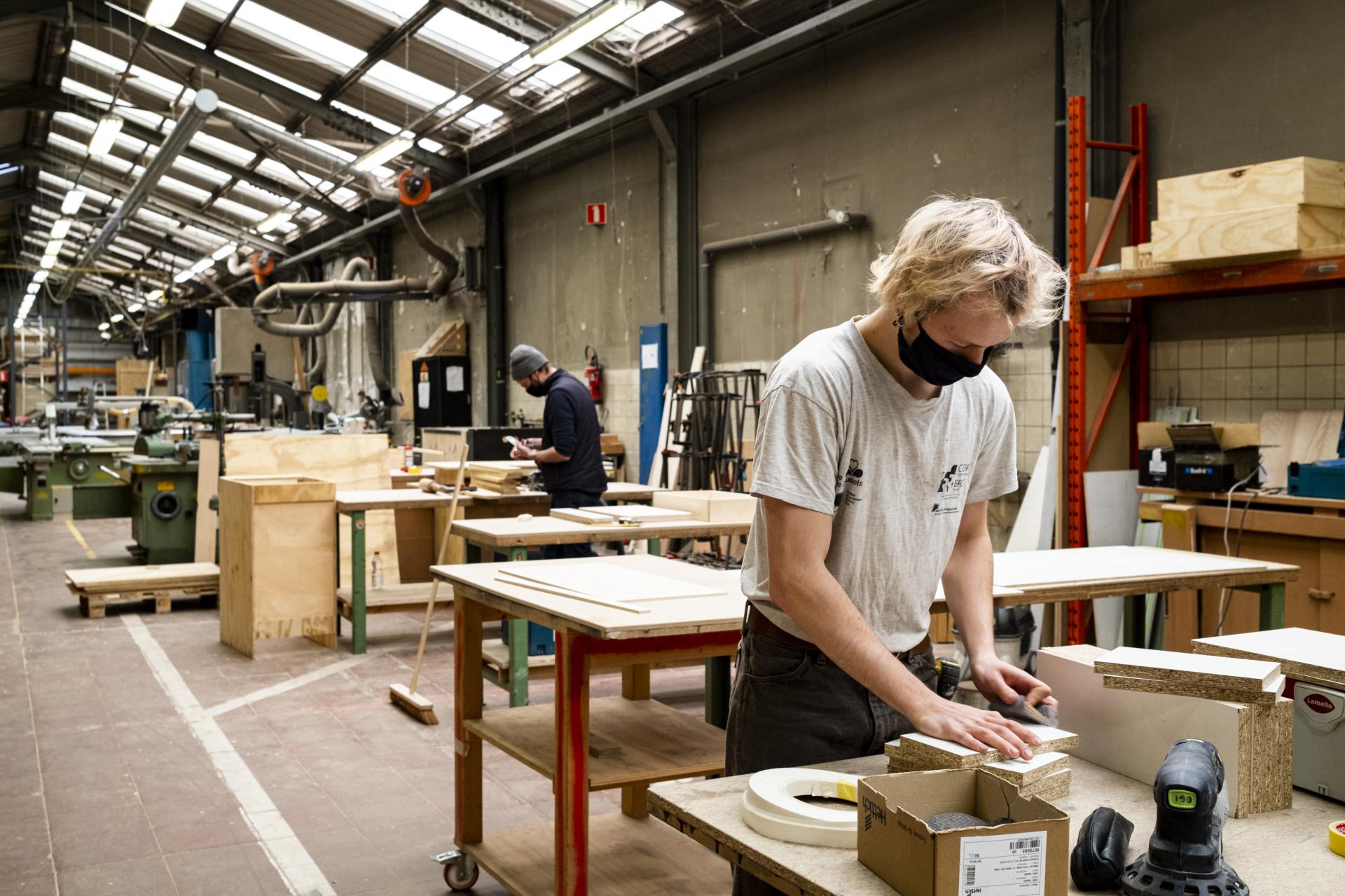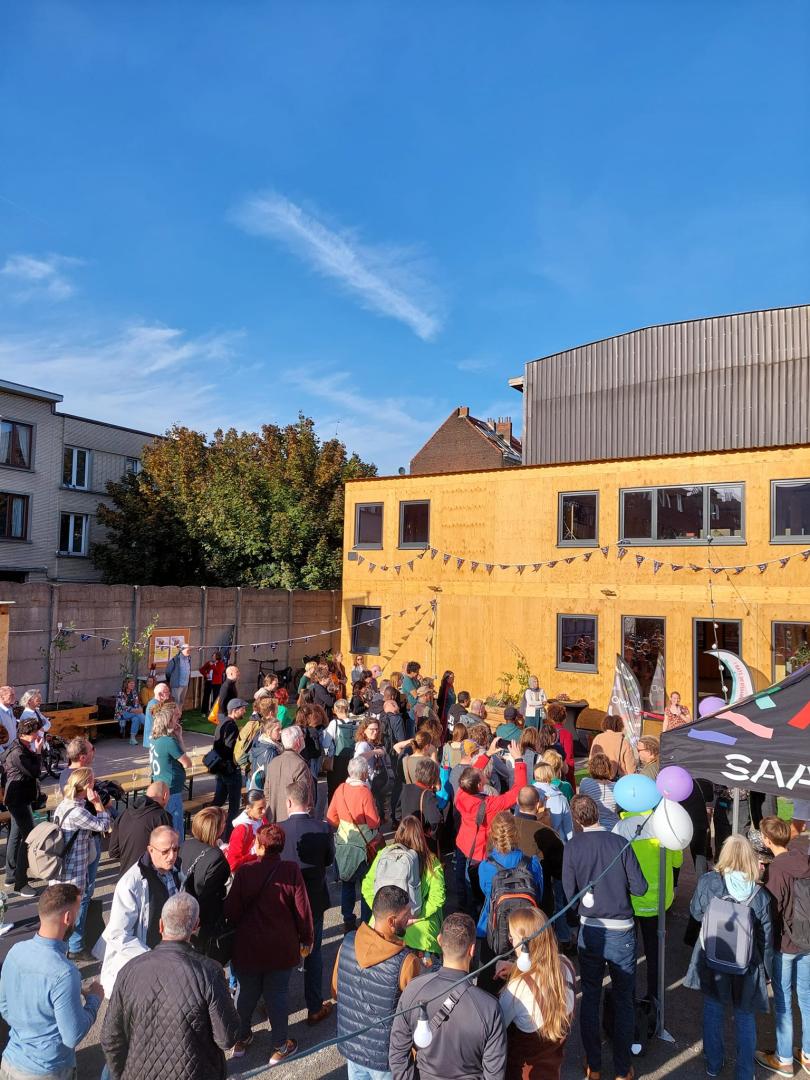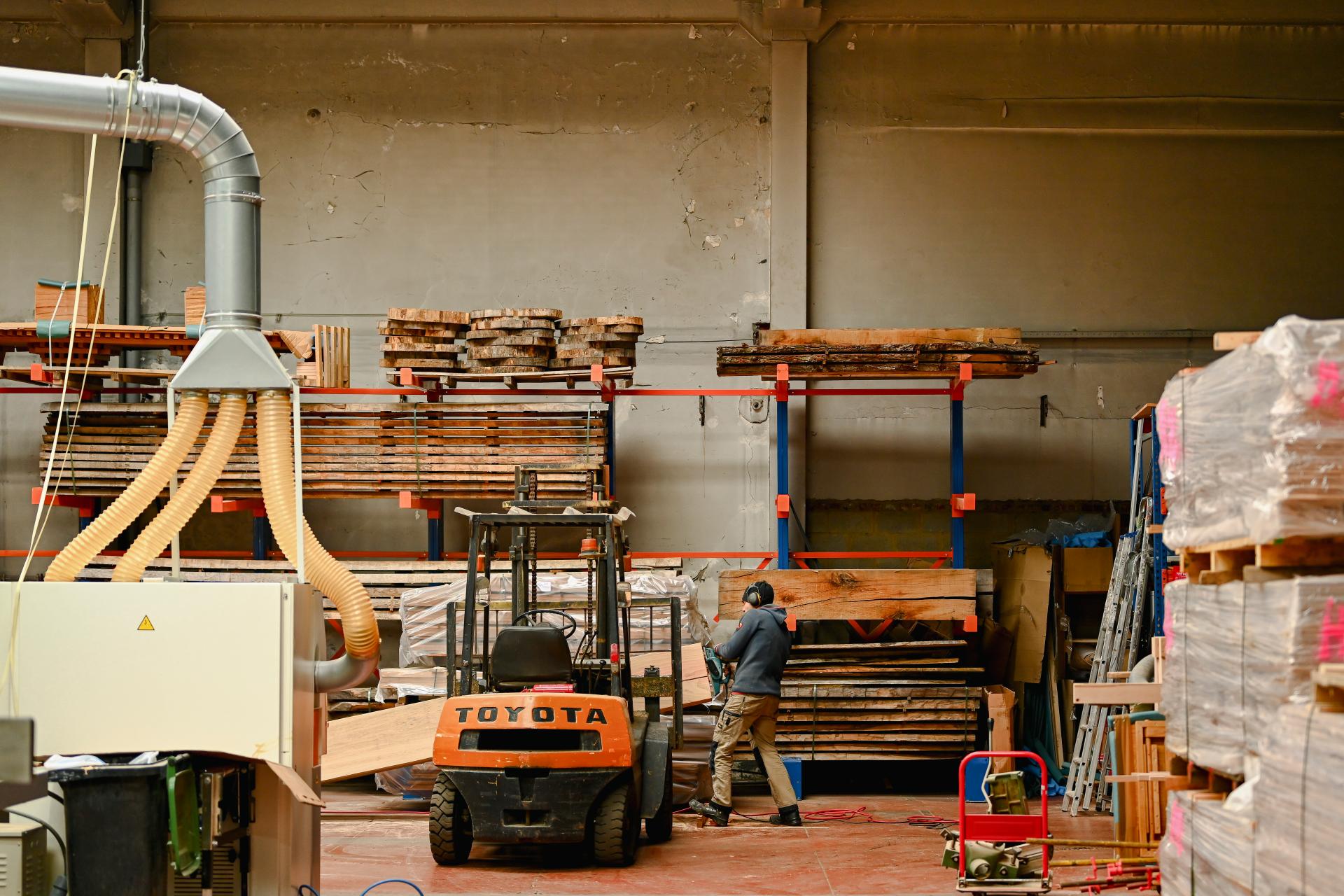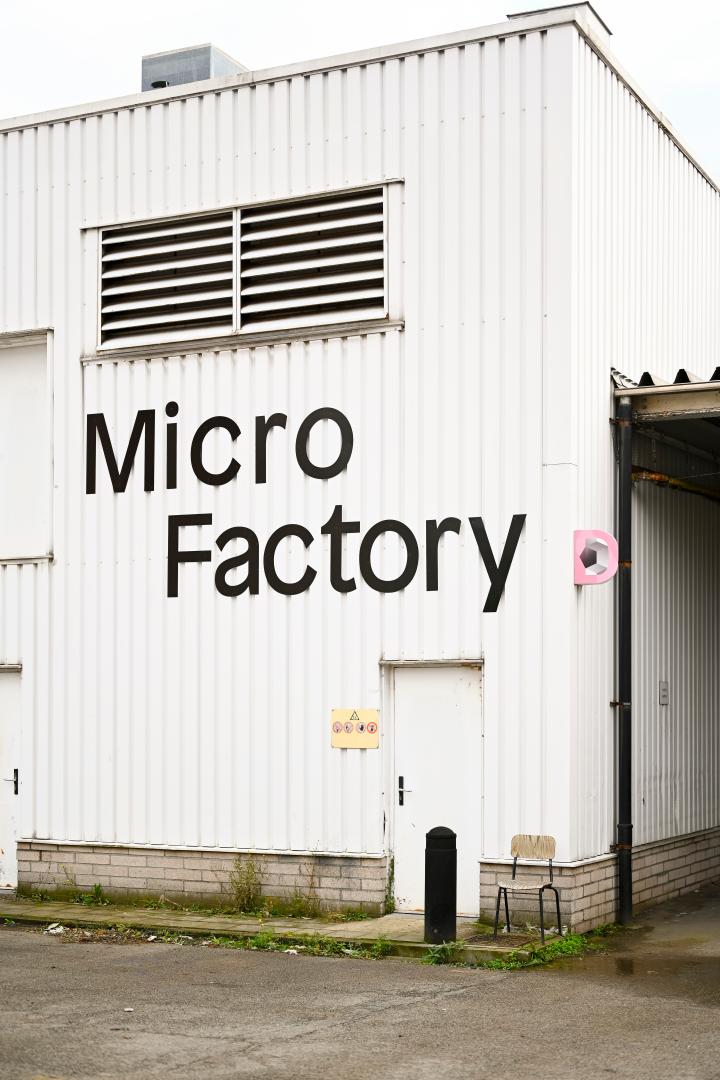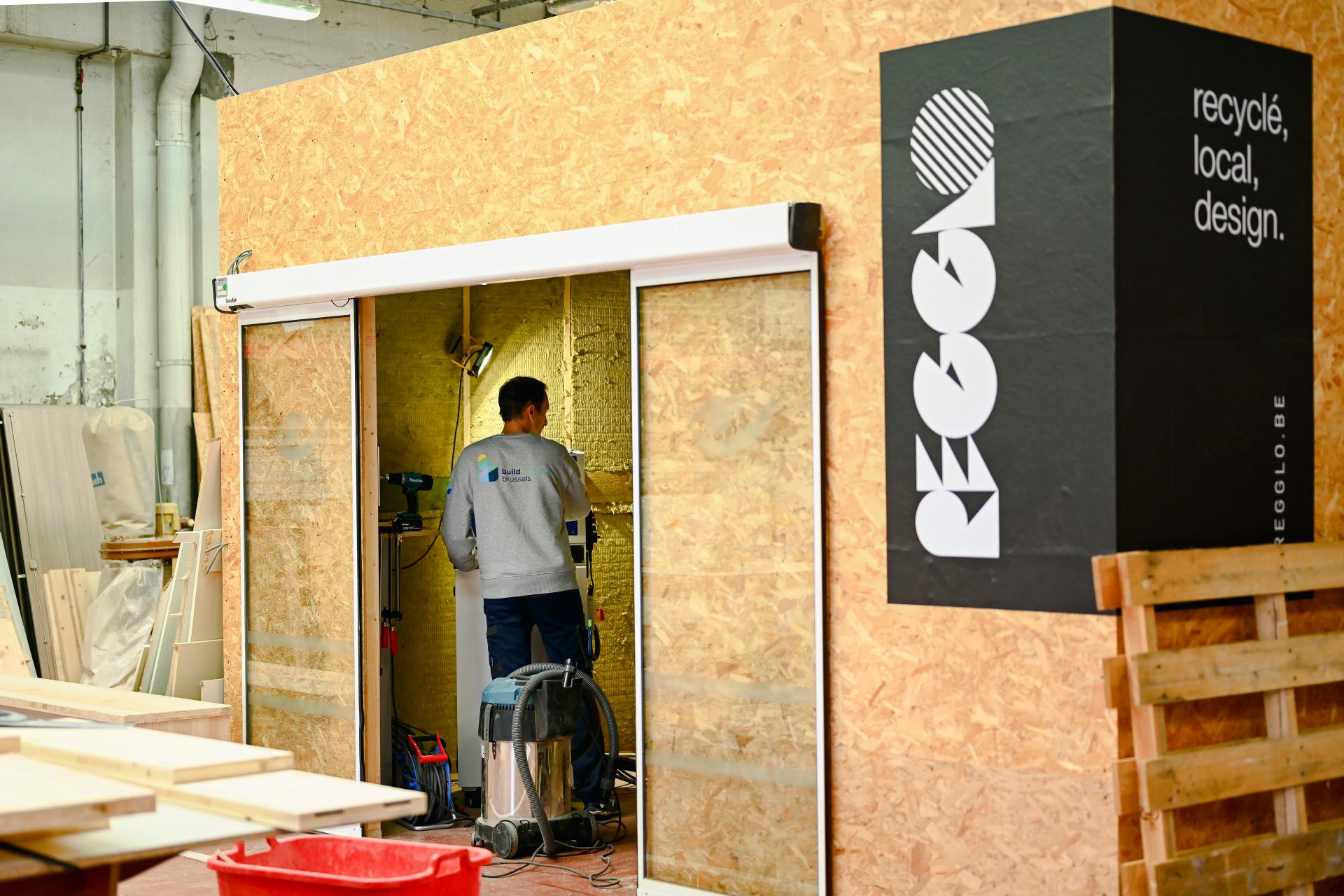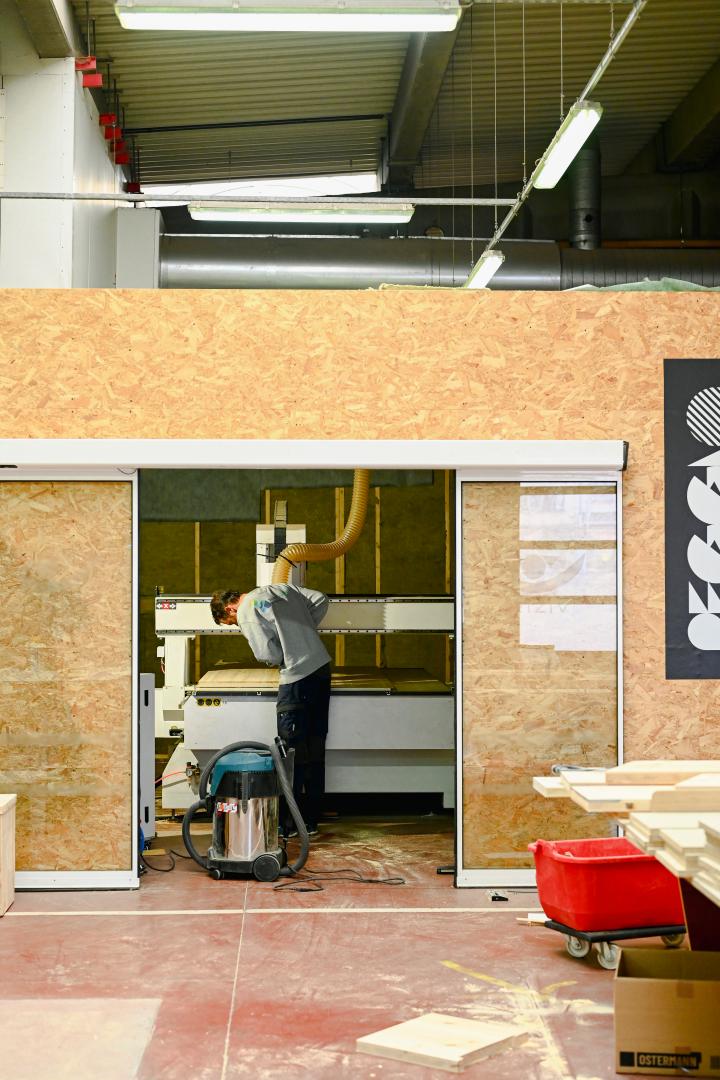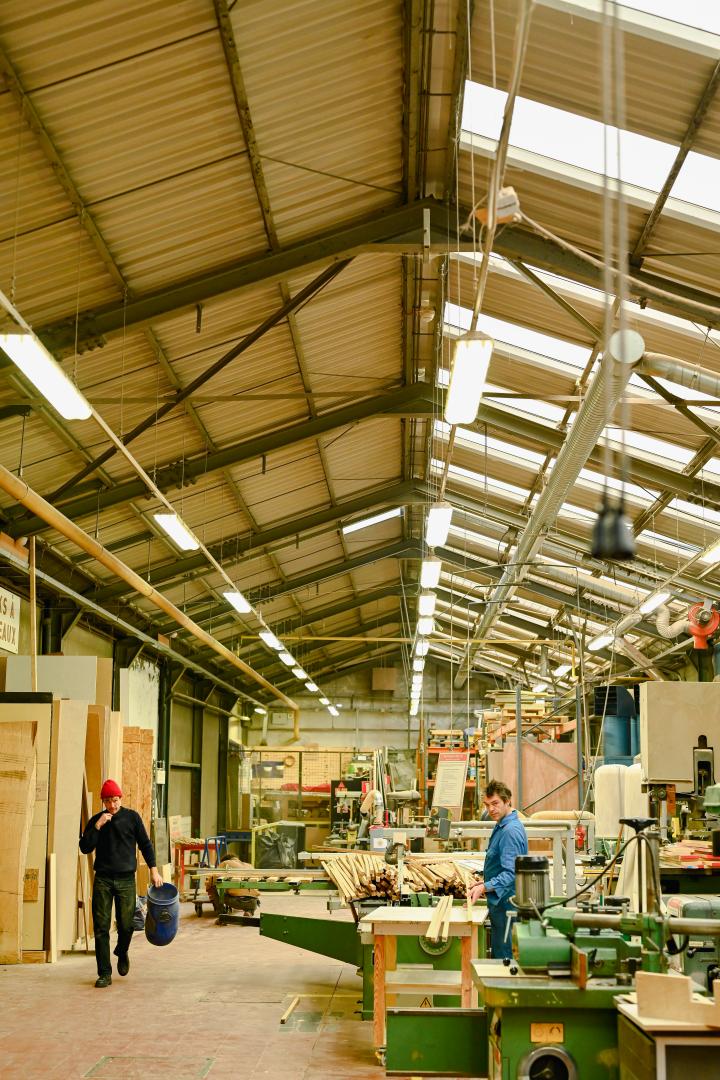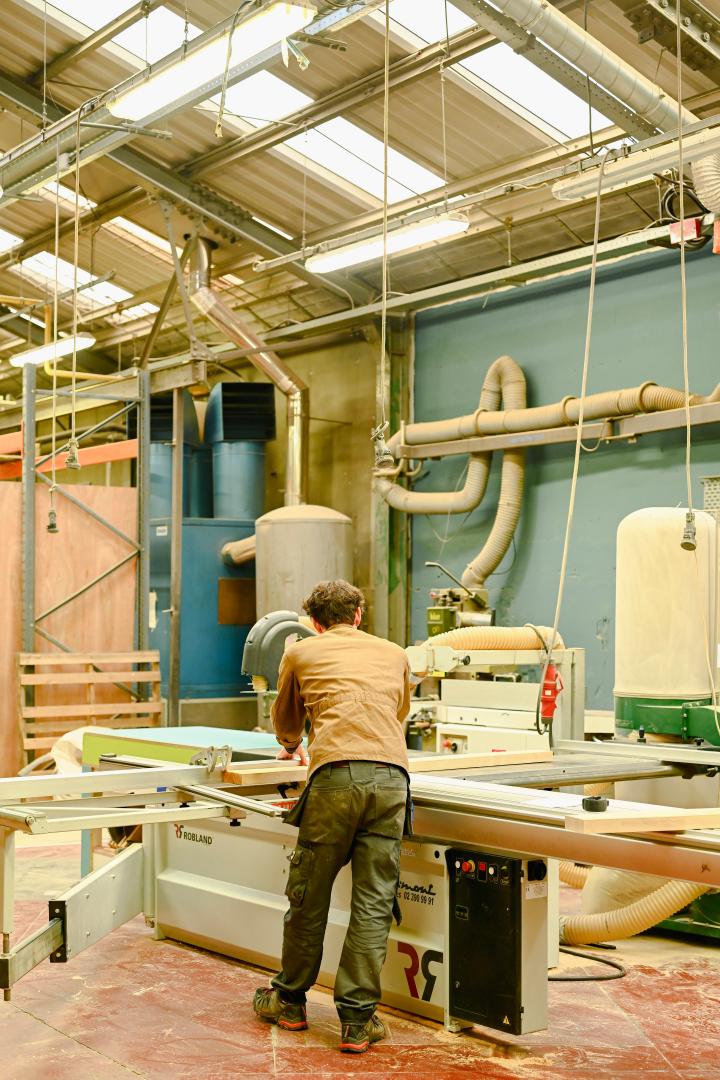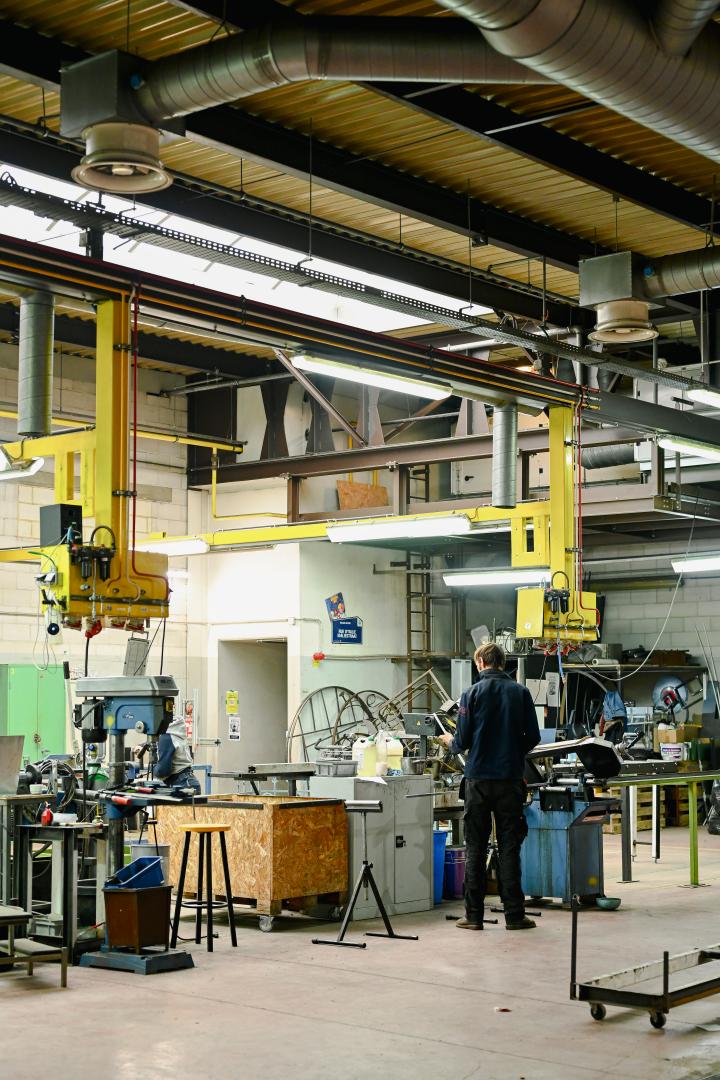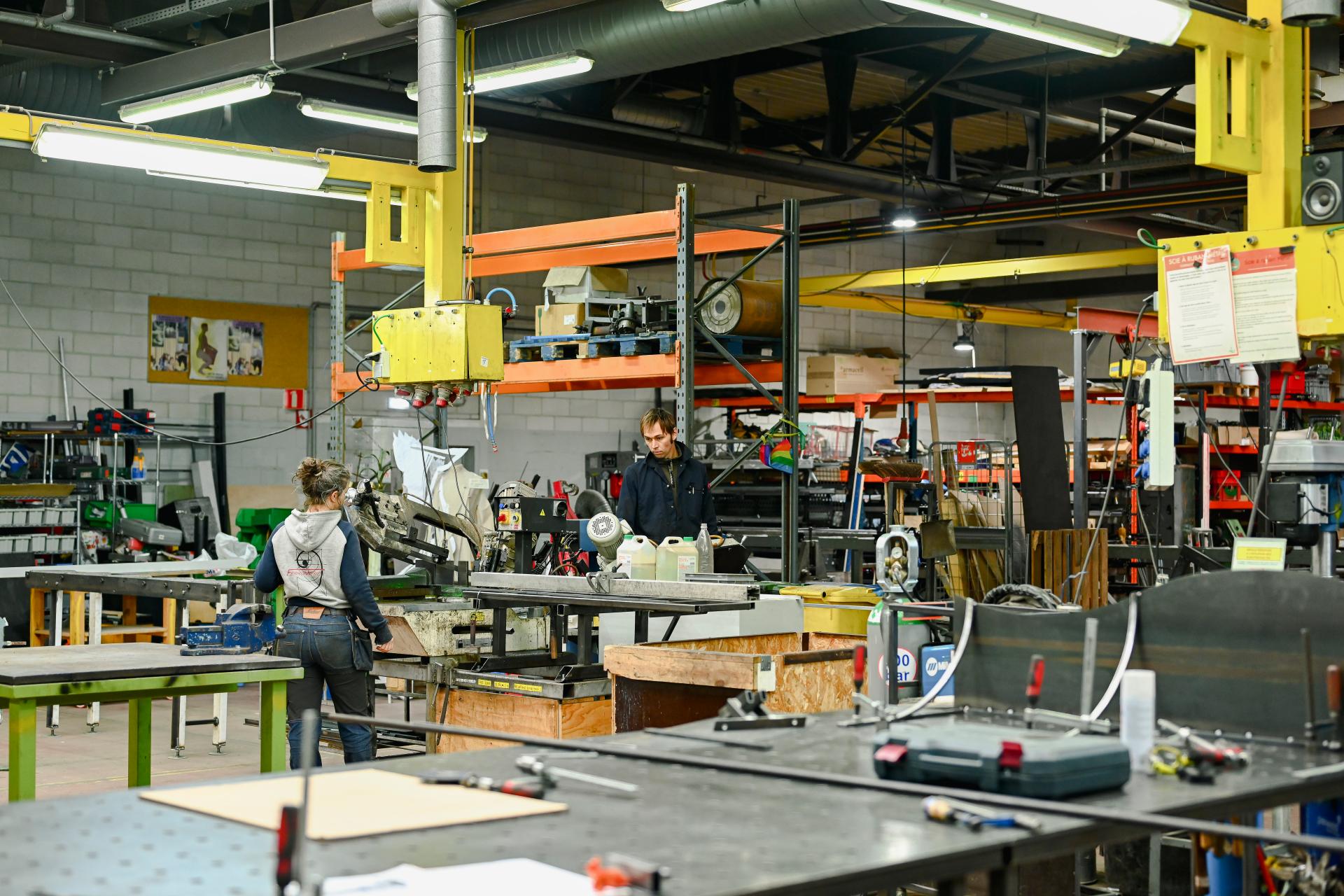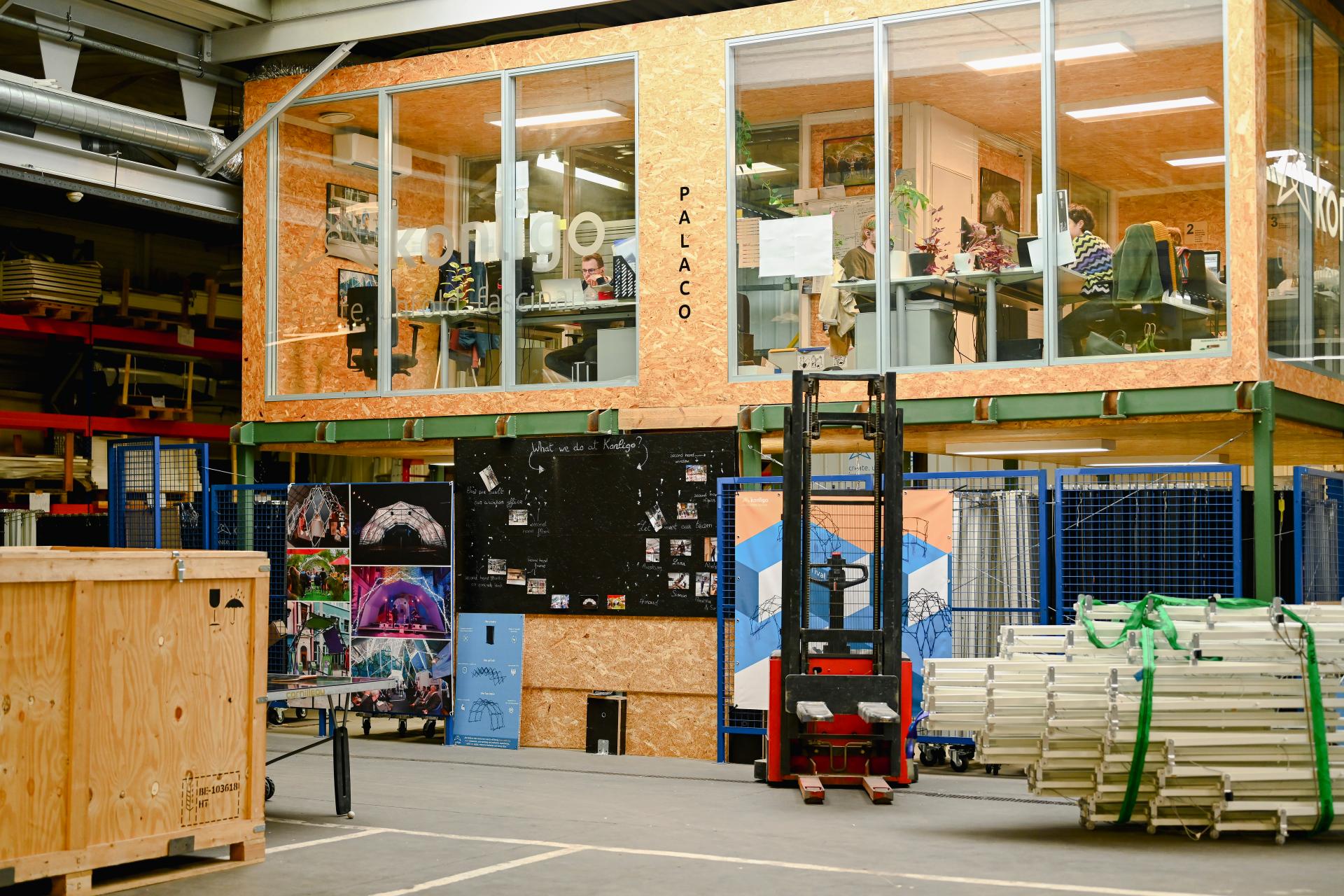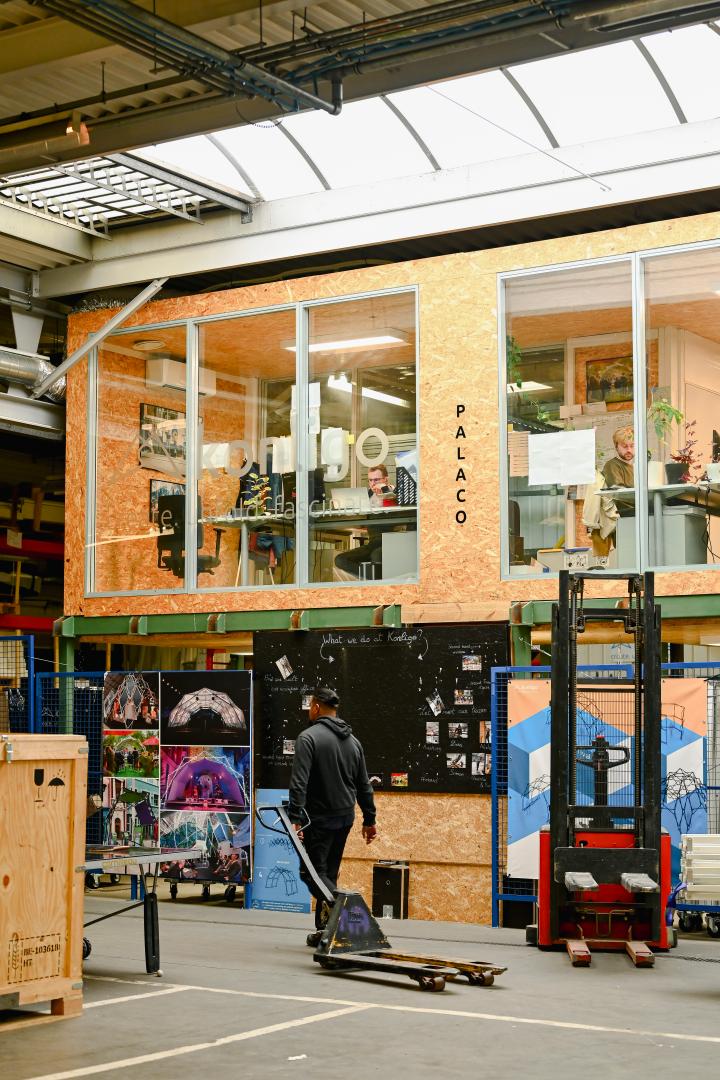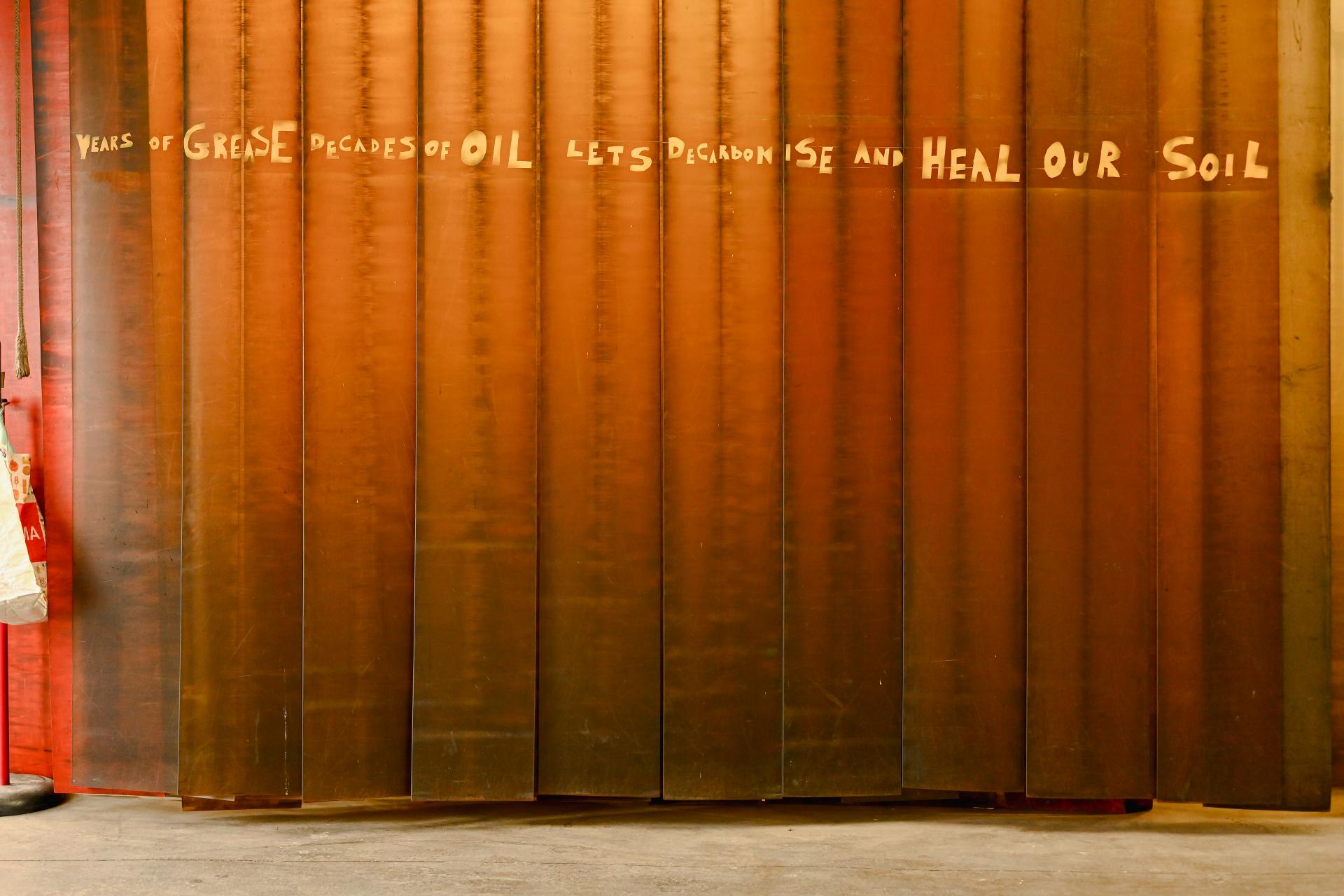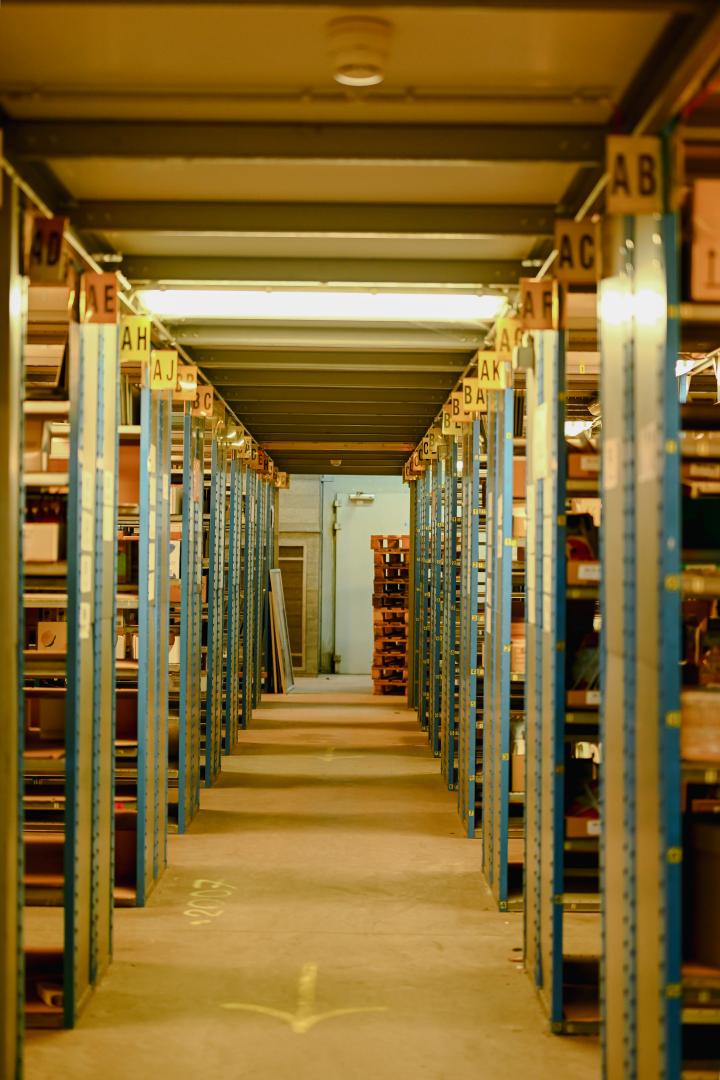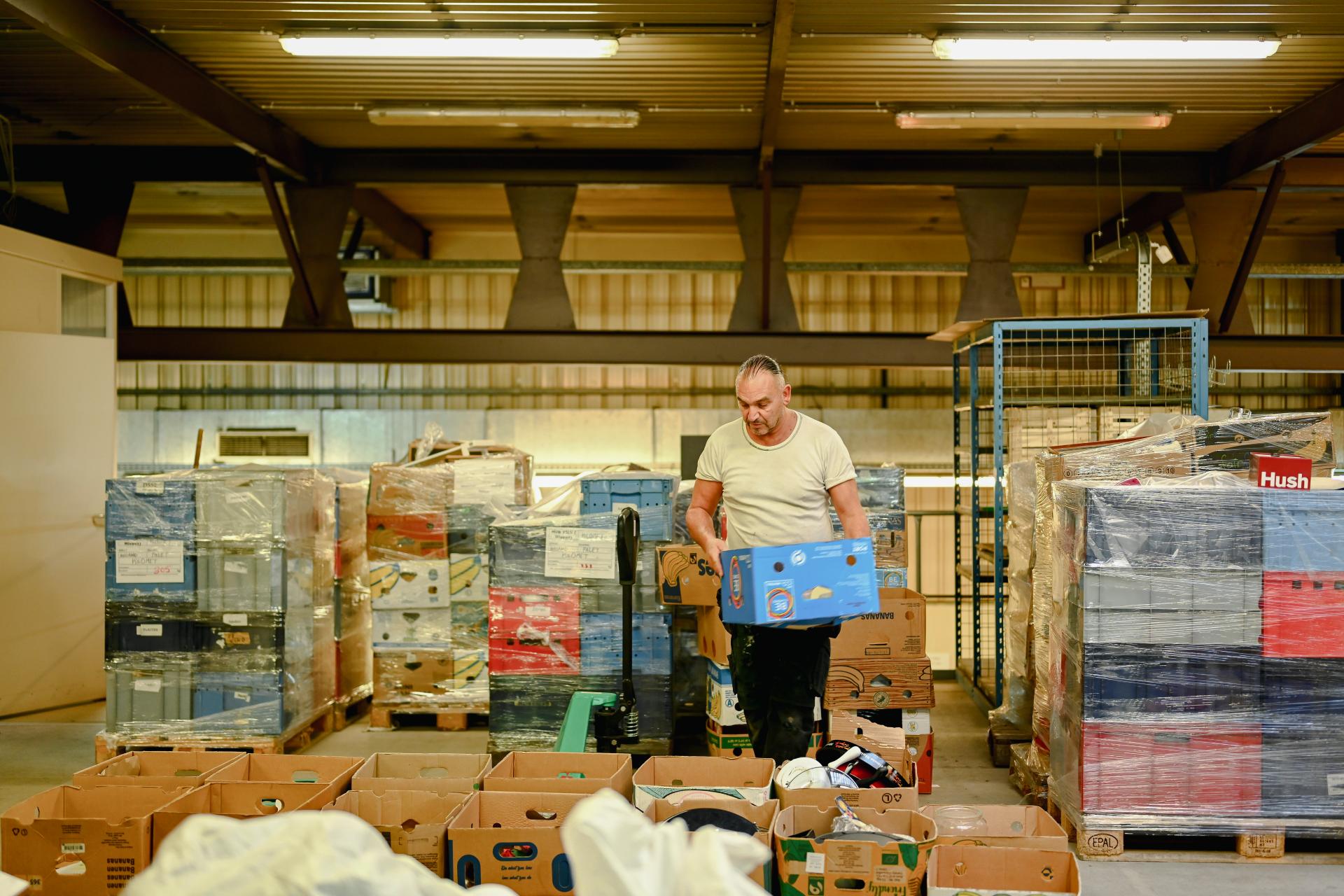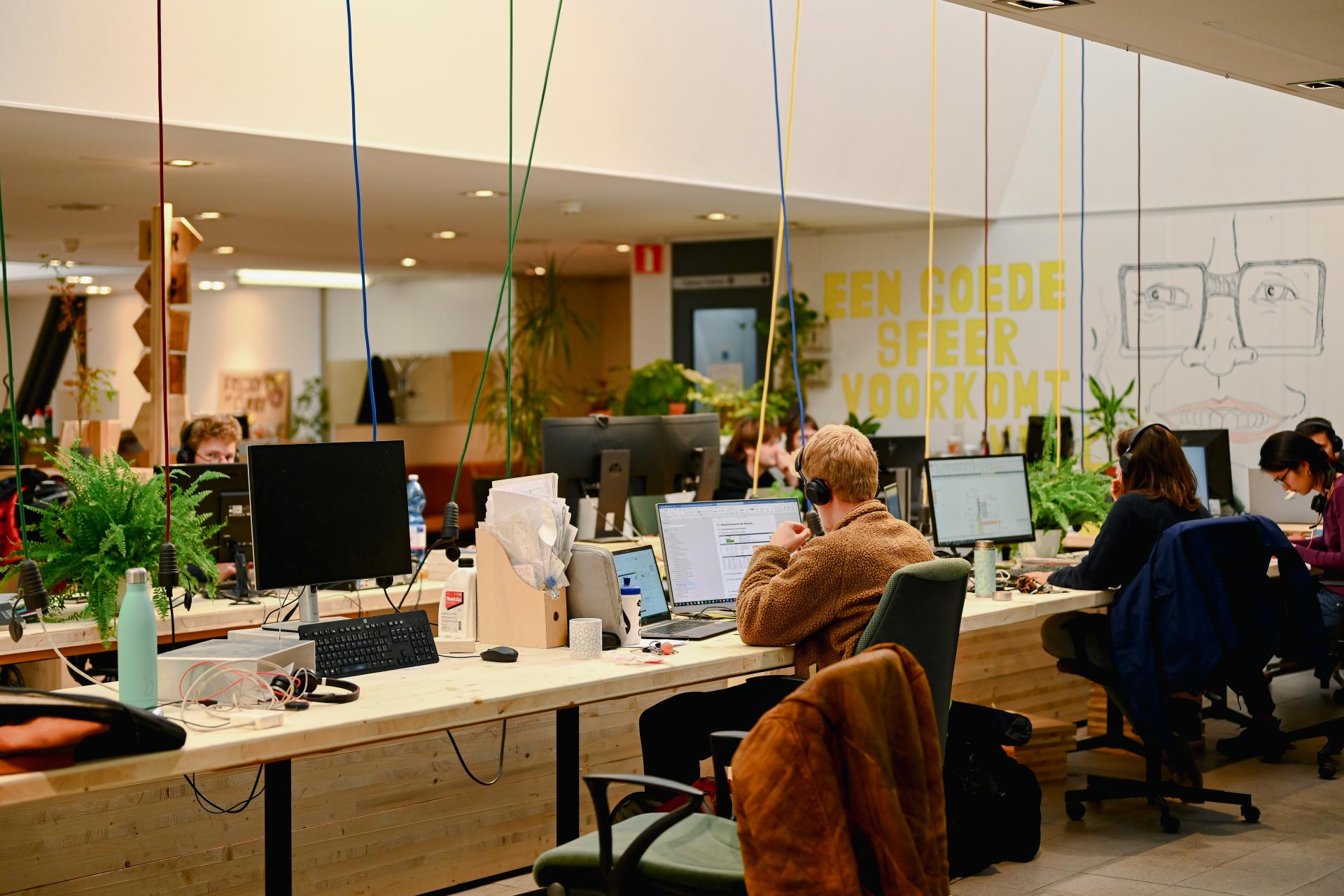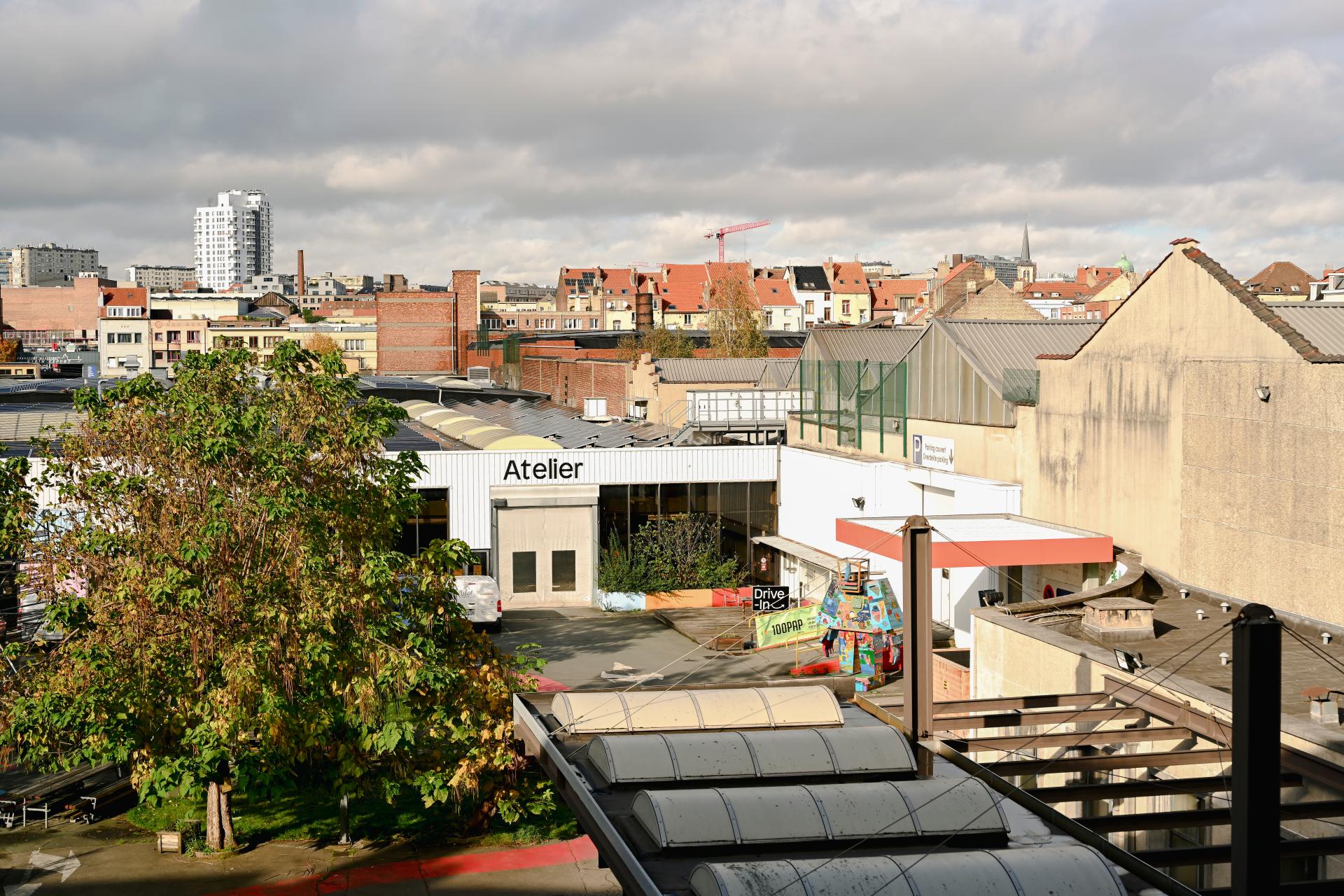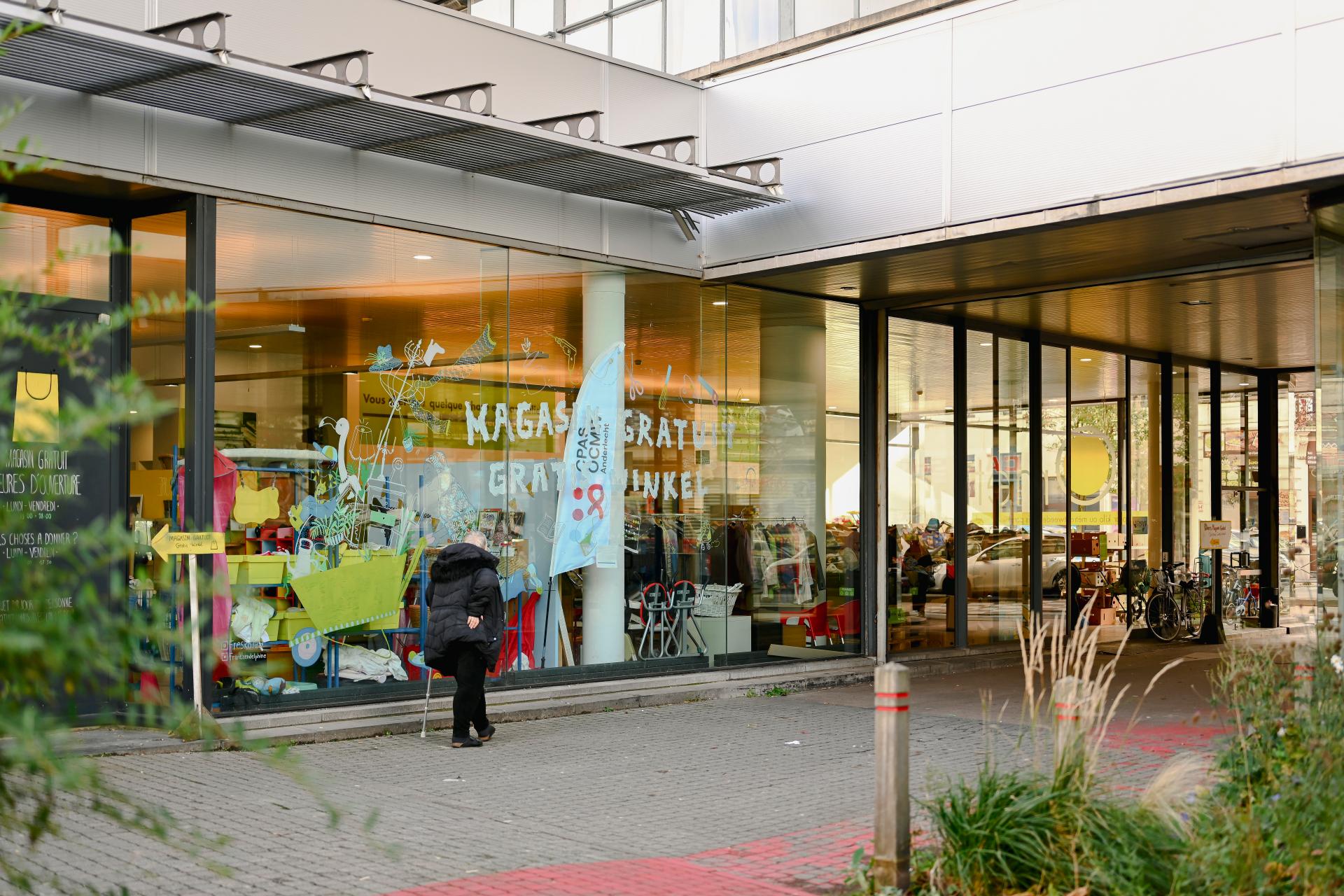Circularium
Basic information
Project Title
Circularium
Category
Shaping a circular industrial ecosystem and supporting life-cycle thinking
Project Description
Transformation of a 20km2 car dealership complex into a hub for innovation, circular & productive economy, well anchored into the neighborhood life. Incarnating the shift to the new economy, the site both captures inspiration & (waste) flows from the city and returns maximal added value with circular products & exemplary services. By upgrading the existing infrastructure in thought-full & circular ways, synergies and cross-pollination are stimulated between site occupants & different players.
Geographical Scope
Regional
Project Region
Brussels Region, Belgium
Urban or rural issues
Mainly urban
Physical or other transformations
It refers to other types of transformations (soft investment)
EU Programme or fund
No
Description of the project
Summary
Circularium is the transformation of a 20.000m2 outdated & underused car garage complex into an innovative hub for the circular & productive economy, well anchored into the Brussels community life. Incarnating the shift from the old to the new economy, the site both captures inspiration & (waste) flows from the city and returns maximal added value with circular products, new jobs & exemplary services. By upgrading the existing infrastructure in a thought-full & circular way, synergies and cross-pollination are stimulated between the many site occupants & different players. Over 30 companies, start-ups, NGOs and cooperatives are operating from our site today. They find affordable production space to work from in the heart of the city. By carefully curating complementary projects we reinforce and shape the circular ecosystem in Brussels. The space hosts a string of activities focused on the surrounding neighborhood; a free shop, repair cafés & family events. The artworks, playgrounds and community gardens complement the beautification and welcoming factor of the project. At the core is the need to create a resilient and sustainable economy with a human approach. We focus on facilitating innovative, sustainable and social impact projects next to providing affordable services to the low-income neighborhood we are situated in. We aim to help reduce waste in the city and stimulate a sharing economy together with decreasing the carbon footprint of the project.
Key objectives for sustainability
Our ambitious project began with a clear vision: to reimagine and repurpose the existing built environment, thereby avoiding demolition and conserving both industrial heritage & valuable carbon budget. We saw the practically abandoned 20,000 m2 garage as a unique opportunity rather than a burden. We embarked on a process of inventory and evaluation, meticulously assessing the strengths and untapped potential of the built environment. It was only after this comprehensive analysis that we began to invite & explore projects that could best tap into and valorize these facilities.
Our approach was one of intelligent adaptation as opposed to the traditional method of developing from a blank canvas. We adopted a sustainable approach to resource management by disassembling materials on site and repurposing them elsewhere on the property, effectively reusing resources that were readily available and reducing waste, in the shortest logistical chain possible.This approach is not only embodied in our infrastructure: our activities are completely aligned in promoting the valorization of urban (waste) streams, the sharing of tools, services, and exchanging best practices among various stakeholders. We believe that by fostering a culture of collaboration and knowledge exchange, we can obtain real & structural sustainability.
By encouraging the use of –in this order– biking, public transport & electric vehicles - we lower traffic congestion and air pollution. Despite hosting over 30 companies and providing workspace for over 200 people, we've consciously limited the parking space to less than 40 vehicles (incl. logistic vehicles).The site also hosts a thriving bike courier cooperative that offers answers to the last-mile problem of the logistical urban puzzle.Lastly, we strive to increase local production capacity. By supporting local manufacturers and promoting local products,we can strengthen the local economy, reduce transport emissions, and further strengthen sustainability.
Our approach was one of intelligent adaptation as opposed to the traditional method of developing from a blank canvas. We adopted a sustainable approach to resource management by disassembling materials on site and repurposing them elsewhere on the property, effectively reusing resources that were readily available and reducing waste, in the shortest logistical chain possible.This approach is not only embodied in our infrastructure: our activities are completely aligned in promoting the valorization of urban (waste) streams, the sharing of tools, services, and exchanging best practices among various stakeholders. We believe that by fostering a culture of collaboration and knowledge exchange, we can obtain real & structural sustainability.
By encouraging the use of –in this order– biking, public transport & electric vehicles - we lower traffic congestion and air pollution. Despite hosting over 30 companies and providing workspace for over 200 people, we've consciously limited the parking space to less than 40 vehicles (incl. logistic vehicles).The site also hosts a thriving bike courier cooperative that offers answers to the last-mile problem of the logistical urban puzzle.Lastly, we strive to increase local production capacity. By supporting local manufacturers and promoting local products,we can strengthen the local economy, reduce transport emissions, and further strengthen sustainability.
Key objectives for aesthetics and quality
Circularium is a community-oriented hub, committed to creating an inclusive, beautiful & eco-friendly neighborhood. Our initiatives are designed to jumpstart the circular economy and foster active engagement with our neighbors.Infusing Color and Creativity A once mundane customer parking lot has been transformed into a vibrant playground, adorned with artworks from renowned artists like Koen Vanmechelen & Rocio Alvarez, and many more. Embracing Green Spaces Concrete no longer dominates our surroundings. We've replaced large concrete areas with greenery, morphing our space into a small urban oasis.
Supporting Grassroots Initiatives We believe in the power of community involvement. When our neighbors, who lacked garden space, proposed to cultivate and look after a garden, we supported their idea and helped find funding for it. Promoting the Culture of Giving
In the first 3 years, Circularium has been instrumental in distributing 50 tons of goods via our ‘free shop'. This unique shop, run by local volunteers, offers everything for free & attracts 130-200 visitors a day, including generous donors who contribute underused items.
Ensuring Accessibility Our site is easily accessible with 3 entrances spread across different streets. Each is designed to be inviting, featuring options such as a playground, fitness infrastructure, or community gardens. Encouraging Recreation
We've made our site more appealing by installing a sauna & a small swimming pool, adding a fun and community-centric dimension to our initiative. We are exemplary in the sense that there are very few business or production sites who have this far reaching care for the neighborhood it is situated in. Unlike traditional business parks that are focused inward and are conceived mostly to please their direct customers, we actively seek out opportunities to contribute positively to our surroundings. Our interventions are designed to bridge these needs, creating a harmonious and mut. beneficial environment.
Supporting Grassroots Initiatives We believe in the power of community involvement. When our neighbors, who lacked garden space, proposed to cultivate and look after a garden, we supported their idea and helped find funding for it. Promoting the Culture of Giving
In the first 3 years, Circularium has been instrumental in distributing 50 tons of goods via our ‘free shop'. This unique shop, run by local volunteers, offers everything for free & attracts 130-200 visitors a day, including generous donors who contribute underused items.
Ensuring Accessibility Our site is easily accessible with 3 entrances spread across different streets. Each is designed to be inviting, featuring options such as a playground, fitness infrastructure, or community gardens. Encouraging Recreation
We've made our site more appealing by installing a sauna & a small swimming pool, adding a fun and community-centric dimension to our initiative. We are exemplary in the sense that there are very few business or production sites who have this far reaching care for the neighborhood it is situated in. Unlike traditional business parks that are focused inward and are conceived mostly to please their direct customers, we actively seek out opportunities to contribute positively to our surroundings. Our interventions are designed to bridge these needs, creating a harmonious and mut. beneficial environment.
Key objectives for inclusion
Circularium chooses to host both profit and non-profit entities, startups, scale-ups, and independent professionals. By offering a sharp & attractive sub-market rent and at the same up to 5 year fixed contracts, we can combine flexibility with continuity. We believe that a site hosting diverse activities, addressing various issues and audiences, creates a more comprehensive approach to shaping our future economy. By literally bringing different perspectives and ambitions closer to each other we believe we create a more complete approach and we feel that they rub off on and inspire each other.
All strategic sectors - varying from food to mobility, from wood industry to textile, from reuse to events – are covered. We believe that this variety is enriching and inspiring and that is what why we brought them together. The site currently hosts 15 startups, 11 ngo’s, 3 scale-ups, and 2 cooperatives, all contributing and incarnating the European motto: united in diversity.
This diversity allows to stimulate co-creation. All projects are informed and consulted about future initiatives to ensure they complement the existing ecosystem. We've undertaken several site improvements with input from different onsite companies and ngo’s.
While most on-site products and services from circular economy startups tend to be expensive and cater to middle or upper-income users, we've focused on affordability and accessibility in our stores, as they represent our project to our immediate surroundings. Our aim is to provide accessible and durable products for the whole city but especially for the low-income neighborhood with limited public green spaces, where it’s situated. For instance, we host a store called 'Kilomet' that sells second-hand goods by weight or size (for furniture). Clothes are sold for 4 euros per kilo, household items are sold for 2 euro per kilo. We also facilitate a free exchange of goods between community members through our free shop.
All strategic sectors - varying from food to mobility, from wood industry to textile, from reuse to events – are covered. We believe that this variety is enriching and inspiring and that is what why we brought them together. The site currently hosts 15 startups, 11 ngo’s, 3 scale-ups, and 2 cooperatives, all contributing and incarnating the European motto: united in diversity.
This diversity allows to stimulate co-creation. All projects are informed and consulted about future initiatives to ensure they complement the existing ecosystem. We've undertaken several site improvements with input from different onsite companies and ngo’s.
While most on-site products and services from circular economy startups tend to be expensive and cater to middle or upper-income users, we've focused on affordability and accessibility in our stores, as they represent our project to our immediate surroundings. Our aim is to provide accessible and durable products for the whole city but especially for the low-income neighborhood with limited public green spaces, where it’s situated. For instance, we host a store called 'Kilomet' that sells second-hand goods by weight or size (for furniture). Clothes are sold for 4 euros per kilo, household items are sold for 2 euro per kilo. We also facilitate a free exchange of goods between community members through our free shop.
Results in relation to category
Hosting 15 startups, 11 ngo’s, 3 scale-ups, and 2 cooperatives demonstrates the project's role in supporting local SME’s. Nine projects have launched their activities on-site, indicating the project's contribution to entrepreneurship and job creation.
Employment per project has increased by over 20%, underscoring the positive impact on job opportunities within the local community. 20 low skilled workers found employment and training on the site this year
500 people were trained and certified this year in the logistics center to drive a forklift. Redistributing 25 tons of un(der)used goods annually through the Free Shop, 176 tonnes second hand goods and 150 tons of used building materials sold onsite promotes a circular economy and reduces waste. Organizing 11 repair cafés & repairing 150 household items for free highlights the project's commitment and waste reduction. A local 'recuperathèque' offers access to free second-hand construction materials.
The involvement of 44 volunteers & the provision of personal assistance to 64 individuals to approve their personal situation and inform them of available welfare programs Offering bike training to 53 people to learn to cycle with cargobikes or to learn adults to cycle encourages green mobility 300 kids have received free gifts during our yearly Christmas event. Installing 4,000m2 of solar panels contributes to clean energy production and reduces the project's environmental footprint. Hosting (international) 35 events, most of which are related to sustainability or social impact, showcasing the project's commitment to raising awareness and fostering positive change. Selected as one of the 3 final candidates at the 2022 MIPIM real estate awards for "Best Alternative Project" recognizes the project's innovative and impactful nature on a global scale, and its breakthrough within the mainstream real estate approach.
Employment per project has increased by over 20%, underscoring the positive impact on job opportunities within the local community. 20 low skilled workers found employment and training on the site this year
500 people were trained and certified this year in the logistics center to drive a forklift. Redistributing 25 tons of un(der)used goods annually through the Free Shop, 176 tonnes second hand goods and 150 tons of used building materials sold onsite promotes a circular economy and reduces waste. Organizing 11 repair cafés & repairing 150 household items for free highlights the project's commitment and waste reduction. A local 'recuperathèque' offers access to free second-hand construction materials.
The involvement of 44 volunteers & the provision of personal assistance to 64 individuals to approve their personal situation and inform them of available welfare programs Offering bike training to 53 people to learn to cycle with cargobikes or to learn adults to cycle encourages green mobility 300 kids have received free gifts during our yearly Christmas event. Installing 4,000m2 of solar panels contributes to clean energy production and reduces the project's environmental footprint. Hosting (international) 35 events, most of which are related to sustainability or social impact, showcasing the project's commitment to raising awareness and fostering positive change. Selected as one of the 3 final candidates at the 2022 MIPIM real estate awards for "Best Alternative Project" recognizes the project's innovative and impactful nature on a global scale, and its breakthrough within the mainstream real estate approach.
How Citizens benefit
Citizens and civil society are connected on 3 different levels: goods, services & capacity building. For example:
Urban gardens: a multitude of gardening projects are currently being implemented, each of which has been sparked by the initiative of local citizens and neighbors. These individuals, in search of a plot of land to cultivate, have transformed the space into a thriving green space, and we help them in finding funding.
Free shop: the free shop, fully staffed by dedicated volunteers, is a shop where everyone can shop one item for free every day (supply is guaranteed by donations). The majority of these volunteers are former customers: people who have benefited from the project and now want to contribute their time and energy to its continued success. The shop acts as a local meeting spot, for the underprivileged featuring free coffee & a 'hangout corner'. With up to 200 visitors a day, it has become an extremely popular neighborhood gathering place. Everyday there is a cue of up to 15 people before opening. The cue in itself has become a meeting place for neighborhood residents. In terms of inclusion this part of our project could not be any more inclusive, even unaccompanied schoolchildren frequent it daily and can 'afford' something there (since everything is free).
Circularium helps create local jobs and boosts the local economy. By providing affordable workspace, we stimulate growth for SME’s and increase employment & training opportunities. F.e. the presence of a logistics training center on site helps bridge the gap between job opportunities and unemployed or untrained individuals. We also house a youth outreach center, providing a safe and supportive environment for young people.
While the nature of the projects varies, a common thread is that most of the citizens involved are beneficiaries of the services provided, underscoring our commitment to serving the community and involving local citizens in meaningful ways.
Urban gardens: a multitude of gardening projects are currently being implemented, each of which has been sparked by the initiative of local citizens and neighbors. These individuals, in search of a plot of land to cultivate, have transformed the space into a thriving green space, and we help them in finding funding.
Free shop: the free shop, fully staffed by dedicated volunteers, is a shop where everyone can shop one item for free every day (supply is guaranteed by donations). The majority of these volunteers are former customers: people who have benefited from the project and now want to contribute their time and energy to its continued success. The shop acts as a local meeting spot, for the underprivileged featuring free coffee & a 'hangout corner'. With up to 200 visitors a day, it has become an extremely popular neighborhood gathering place. Everyday there is a cue of up to 15 people before opening. The cue in itself has become a meeting place for neighborhood residents. In terms of inclusion this part of our project could not be any more inclusive, even unaccompanied schoolchildren frequent it daily and can 'afford' something there (since everything is free).
Circularium helps create local jobs and boosts the local economy. By providing affordable workspace, we stimulate growth for SME’s and increase employment & training opportunities. F.e. the presence of a logistics training center on site helps bridge the gap between job opportunities and unemployed or untrained individuals. We also house a youth outreach center, providing a safe and supportive environment for young people.
While the nature of the projects varies, a common thread is that most of the citizens involved are beneficiaries of the services provided, underscoring our commitment to serving the community and involving local citizens in meaningful ways.
Physical or other transformations
It refers to other types of transformations (soft investment)
Innovative character
We’re innovative in three aspects: the infrastructure, the hub, and the mixed approach. Firstly, where most of the old industrial infrastructure of Europe’s cities, is currently transformed into mere apartments or offices for a designated public, we’ve chosen to innovate with the infrastructure, the activities ànd the neighborhood. By maintaining, adapting & upgrading the industrial facilities, we’ve extended the life cycle of the buildings and chosen the path less traveled.
In our hub, we are hosting a number of cutting edge & award winning startups: Resortecs is revolutionizing textile recycling (Circular Challenge Award, EcoDesign Award), Sirona is developing new carbon capture technology, Konligo (Innovative Starters Award) is creating innovative event infrastructure, to name but a few. Harbouring innovation is at the core of the project.
The third part of our innovative approach was to bring these innovative projects together in a way that stimulates them and mixes them with different user types and the neigborhood unique mixity. SME’s all share similar challenges so there is plenty to learn from each other a, but creating a mix with other types of activities broadens the conversation.
The innovation and originality of Circularium are apparent in its holistic approach to sustainability, mixing different types of projects (startups, NGOs, cooperatives, and scale-ups) to create a diverse and inclusive ecosystem that bridges the gap between different interests and inspires each other. Circularium in this way shows a model for repurposing industrial spaces, integrating sustainability, promoting circular practices, and fostering community engagement. It is a holistic and multifaceted project that encompasses environmental, social, and economic sustainability, with an inclusive approach that sets it apart.
In our hub, we are hosting a number of cutting edge & award winning startups: Resortecs is revolutionizing textile recycling (Circular Challenge Award, EcoDesign Award), Sirona is developing new carbon capture technology, Konligo (Innovative Starters Award) is creating innovative event infrastructure, to name but a few. Harbouring innovation is at the core of the project.
The third part of our innovative approach was to bring these innovative projects together in a way that stimulates them and mixes them with different user types and the neigborhood unique mixity. SME’s all share similar challenges so there is plenty to learn from each other a, but creating a mix with other types of activities broadens the conversation.
The innovation and originality of Circularium are apparent in its holistic approach to sustainability, mixing different types of projects (startups, NGOs, cooperatives, and scale-ups) to create a diverse and inclusive ecosystem that bridges the gap between different interests and inspires each other. Circularium in this way shows a model for repurposing industrial spaces, integrating sustainability, promoting circular practices, and fostering community engagement. It is a holistic and multifaceted project that encompasses environmental, social, and economic sustainability, with an inclusive approach that sets it apart.
Disciplines/knowledge reflected
Our team is composed of a diverse group of experts that includes architects, urbanists, specialists in circular ecosystem design, site and property managers, financial management experts, anthropologists, sociologists, communication professionals, and artists. This multidisciplinary team serves as the core of our project.
This core team has designed and executed various uses for the site, bringing their unique expertise to bear on the project. The anthropologist, for instance, has developed a strategy that integrates the project into a highly diverse area with a population consisting mainly of non-EU residents and economically disadvantaged individuals. This involves understanding the local culture, needs, and challenges, and ensuring the project addresses these elements effectively.
The property manager has taken on a key role in transforming the (mostly passive) garage facility into a thriving circular business center. This center now hosts over 30 companies and organizations, making it a hub of economic activity. The property manager has focused on creating a supporting and productive working environment, ensuring that all businesses can operate effectively, even offering aid on permits.
Urbanists have ensured that our project aligns with regional urban planning. Their recommendations have been instrumental in shaping the project's program and have made a considerable contribution to the project's success. They have ensured that the project fits seamlessly into the wider urban environment, enhancing the local area rather than detracting from it.
Selecting 31 projects from a pool of proposals is a complex and intensive procedure that involves the core team. This approach, involving multiple perspectives, has proven invaluable. It has enabled us to make informed and balanced decisions, avoiding potential pitfalls that a less diverse team might overlook.
This core team has designed and executed various uses for the site, bringing their unique expertise to bear on the project. The anthropologist, for instance, has developed a strategy that integrates the project into a highly diverse area with a population consisting mainly of non-EU residents and economically disadvantaged individuals. This involves understanding the local culture, needs, and challenges, and ensuring the project addresses these elements effectively.
The property manager has taken on a key role in transforming the (mostly passive) garage facility into a thriving circular business center. This center now hosts over 30 companies and organizations, making it a hub of economic activity. The property manager has focused on creating a supporting and productive working environment, ensuring that all businesses can operate effectively, even offering aid on permits.
Urbanists have ensured that our project aligns with regional urban planning. Their recommendations have been instrumental in shaping the project's program and have made a considerable contribution to the project's success. They have ensured that the project fits seamlessly into the wider urban environment, enhancing the local area rather than detracting from it.
Selecting 31 projects from a pool of proposals is a complex and intensive procedure that involves the core team. This approach, involving multiple perspectives, has proven invaluable. It has enabled us to make informed and balanced decisions, avoiding potential pitfalls that a less diverse team might overlook.
Methodology used
Adaptive reuse of existing sites and buildings and refitting them with sustainable projects that are best fitted for them is a practice that can be repeated worldwide. This cost effective method allows more accessible workspace close to city centers where real estate prices are up and therefore are rarely accessible for startups. By providing this cheaper space to host sustainable projects it allows them to grow sustainably (have better margins and cashflow in the crucial early stages of their development) without being pushed out of the city (where new logistical challenges & extra emissions are caused). Curating an intelligent cluster of these companies that stimulates the synergies and allows for exchange of goods, services and inspiration creates added value to the projects that are part of it.
Situated in one of Brussels' poorest and most diverse neighborhoods that was known for uncivil behaviour, insalubrity, criminality and a highly confrontational response to changes or ‘outsiders’ there was a strong necessity to address this and gain trust and approval from the local inhabitants. The first part of the strategy was to impose not to have any negative impact outside of the buildings; no noise or traffic impact. The second was to attract and speak with local residents and invite them cocreate the public space within the site. The third was to let artists embellish the surroundings. The fourth was to keep the financial threshold low but the impact high: every selected circular tenant was asked to push the bar high and connect with others. This participatory and inclusive approach incarnates, in our view, the New Bauhaus, that is positively disruptive and non-linear.
Situated in one of Brussels' poorest and most diverse neighborhoods that was known for uncivil behaviour, insalubrity, criminality and a highly confrontational response to changes or ‘outsiders’ there was a strong necessity to address this and gain trust and approval from the local inhabitants. The first part of the strategy was to impose not to have any negative impact outside of the buildings; no noise or traffic impact. The second was to attract and speak with local residents and invite them cocreate the public space within the site. The third was to let artists embellish the surroundings. The fourth was to keep the financial threshold low but the impact high: every selected circular tenant was asked to push the bar high and connect with others. This participatory and inclusive approach incarnates, in our view, the New Bauhaus, that is positively disruptive and non-linear.
How stakeholders are engaged
The Circularium project is a unique collaboration between various parties. D'Ieteren Immo, the site owner and a large Belgian multinational, has dedicated the site to host circular economy projects and neighborhood activities. Makettt, a private, impact focused company that has extensive experience in valorizing empty and abandoned spaces, has defined & implemented the innovative & inclusive way of realizing this vision. The SME’s (start up’s, scale up’s, ngo’s & cooperatives) who are active in Circularium, also play an incredibly important role as the ‘makers’ of the project, who animate the site and through their different networks trigger and attract new publics & connect with the neigborhood.
Although the project did not receive any direct government funding or involvement, the local and regional government have supported it in different ways. It has been hailed as an example and used as a launching pad for the Brussels regional Shifting Economy strategy and Belgium Builds Back Circular Awards (funded by Next Generation EU). High-profile figures like his Majesty King Filip and the Belgian prime Minister De Croo have also endorsed and visited the project, aside from a string of local & regional politicians.
Despite the absence of direct government involvement in the project's inception or funding, the planning stages involved consultation with various stakeholders. This included organizing workshops with universities and local stakeholders, conducting extensive inquiries with neighboring initiatives, companies, and individuals, and integrating their visions, opinions, and suggestions into the project's design. This comprehensive consultation has garnered widespread public support for the project and successfully countered criticisms of it being a 'gentrifying initiative'.
Although the project did not receive any direct government funding or involvement, the local and regional government have supported it in different ways. It has been hailed as an example and used as a launching pad for the Brussels regional Shifting Economy strategy and Belgium Builds Back Circular Awards (funded by Next Generation EU). High-profile figures like his Majesty King Filip and the Belgian prime Minister De Croo have also endorsed and visited the project, aside from a string of local & regional politicians.
Despite the absence of direct government involvement in the project's inception or funding, the planning stages involved consultation with various stakeholders. This included organizing workshops with universities and local stakeholders, conducting extensive inquiries with neighboring initiatives, companies, and individuals, and integrating their visions, opinions, and suggestions into the project's design. This comprehensive consultation has garnered widespread public support for the project and successfully countered criticisms of it being a 'gentrifying initiative'.
Global challenges
Climate Change and Carbon Emissions: By repurposing existing structures and implementing energy-efficient practices, Circularium avoids the carbon footprint associated with new construction. This local solution contributes to the global challenge of mitigating climate change.
1. Sustainable Urban (Re)Development: Transforming a car dealership complex into a hub for sustainable projects exemplifies the potential for repurposing urban spaces. This local approach supports sustainable urban development, reducing land & resource consumption and promoting circular economies.
2. Circular Economy and Resource Efficiency: our project focuses on adaptive reuse and facilitating circular economy projects, exemplifying how local communities can reduce waste and maximize resource use. This aligns with the global challenge of transitioning to a circular economy to minimize resource depletion.
3. Community Engagement and Inclusivity: By actively involving local citizens in gardening projects, providing affordable services, and supporting grassroots initiatives, our project fosters community engagement and inclusivity. This local solution addresses the global challenge of creating more inclusive societies and reducing inequalities.
4. Green Mobility and Air Quality: Promoting green mobility through cycle logistics, biking, and public transportation locally addresses the global issue of reducing air pollution and improving urban air quality.
5. Local Job Creation and Economic Growth: By offering affordable workspace and supporting local businesses, our project contributes to local job creation and economic growth. This local approach aligns with the global challenge of creating sustainable & resilient economies and reducing unemployment.
6. Innovation and Knowledge Exchange: our project's collaborative ecosystem encourages knowledge exchange among diverse stakeholders, promoting innovation and solutions for global challenges, such as sustainability and environmental protection.
1. Sustainable Urban (Re)Development: Transforming a car dealership complex into a hub for sustainable projects exemplifies the potential for repurposing urban spaces. This local approach supports sustainable urban development, reducing land & resource consumption and promoting circular economies.
2. Circular Economy and Resource Efficiency: our project focuses on adaptive reuse and facilitating circular economy projects, exemplifying how local communities can reduce waste and maximize resource use. This aligns with the global challenge of transitioning to a circular economy to minimize resource depletion.
3. Community Engagement and Inclusivity: By actively involving local citizens in gardening projects, providing affordable services, and supporting grassroots initiatives, our project fosters community engagement and inclusivity. This local solution addresses the global challenge of creating more inclusive societies and reducing inequalities.
4. Green Mobility and Air Quality: Promoting green mobility through cycle logistics, biking, and public transportation locally addresses the global issue of reducing air pollution and improving urban air quality.
5. Local Job Creation and Economic Growth: By offering affordable workspace and supporting local businesses, our project contributes to local job creation and economic growth. This local approach aligns with the global challenge of creating sustainable & resilient economies and reducing unemployment.
6. Innovation and Knowledge Exchange: our project's collaborative ecosystem encourages knowledge exchange among diverse stakeholders, promoting innovation and solutions for global challenges, such as sustainability and environmental protection.
Learning transferred to other parties
As mentioned, the adaptive reuse of existing sites and buildings and refitting them with sustainable projects that are best fitted for them is a practice that can be repeated worldwide. European cities have a strong industrial heritage and infrastructure that can and should be valorized again (especially after the historic outsourcing of activities towards Asia). We are doing exactly this, although in a more decarbonized way, completely in line with the Green Deal & the Circular Economy Package (2019). It is a cost effective method that allows more accessible workspace close to city centers where real estate prices are up and therefore rarely accessible for startups & SME’s. This circular approach is proven to create jobs, can lead unemployed towards these jobs, and can connect the underprivileged with the rest of the city. Most large European cities have the same problems: high real estate prices, large NEET population, lack of cohesion and disconnect between communities & an increasing inequality. Circularium doesn’t magically eliminate these issues, but offers concrete, reality-based solutions that help people move forward in society, allows SME’s to grow and breeds cohesion.
That our approach is replicable, can already be seen within our city, and even within the neighborhood: we are now in the process of converting the neighboring site, another 4.000 m2 garage facility by a different owner that has held shop here for over 25 years, who was inspired by the transformation of our site he has witnessed the past years. He now too believes that this is the way forward and is making his site available for our project to expand and replicate its core values, approach and methodology. The case of the 4.000 m2 garage next door is a major indicator that even hardened 'petrolheads' can shift perspective and ambition when triggered by what is happening in front of them. We believe the infectious approach of Circularium can lead to many New Bauhauses.
That our approach is replicable, can already be seen within our city, and even within the neighborhood: we are now in the process of converting the neighboring site, another 4.000 m2 garage facility by a different owner that has held shop here for over 25 years, who was inspired by the transformation of our site he has witnessed the past years. He now too believes that this is the way forward and is making his site available for our project to expand and replicate its core values, approach and methodology. The case of the 4.000 m2 garage next door is a major indicator that even hardened 'petrolheads' can shift perspective and ambition when triggered by what is happening in front of them. We believe the infectious approach of Circularium can lead to many New Bauhauses.
Keywords
Circularity
Productive City
Innovation
Community
Sustainability

